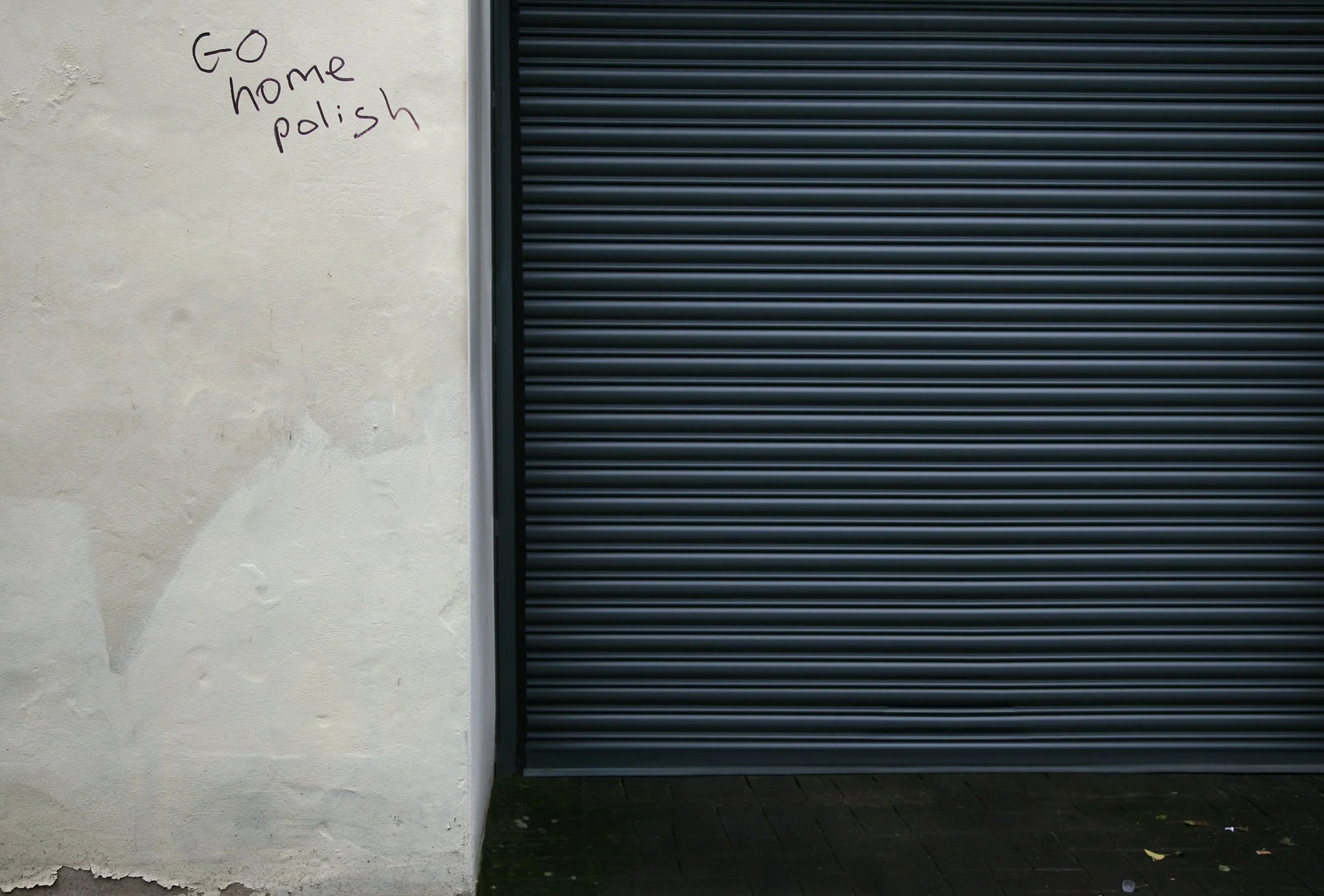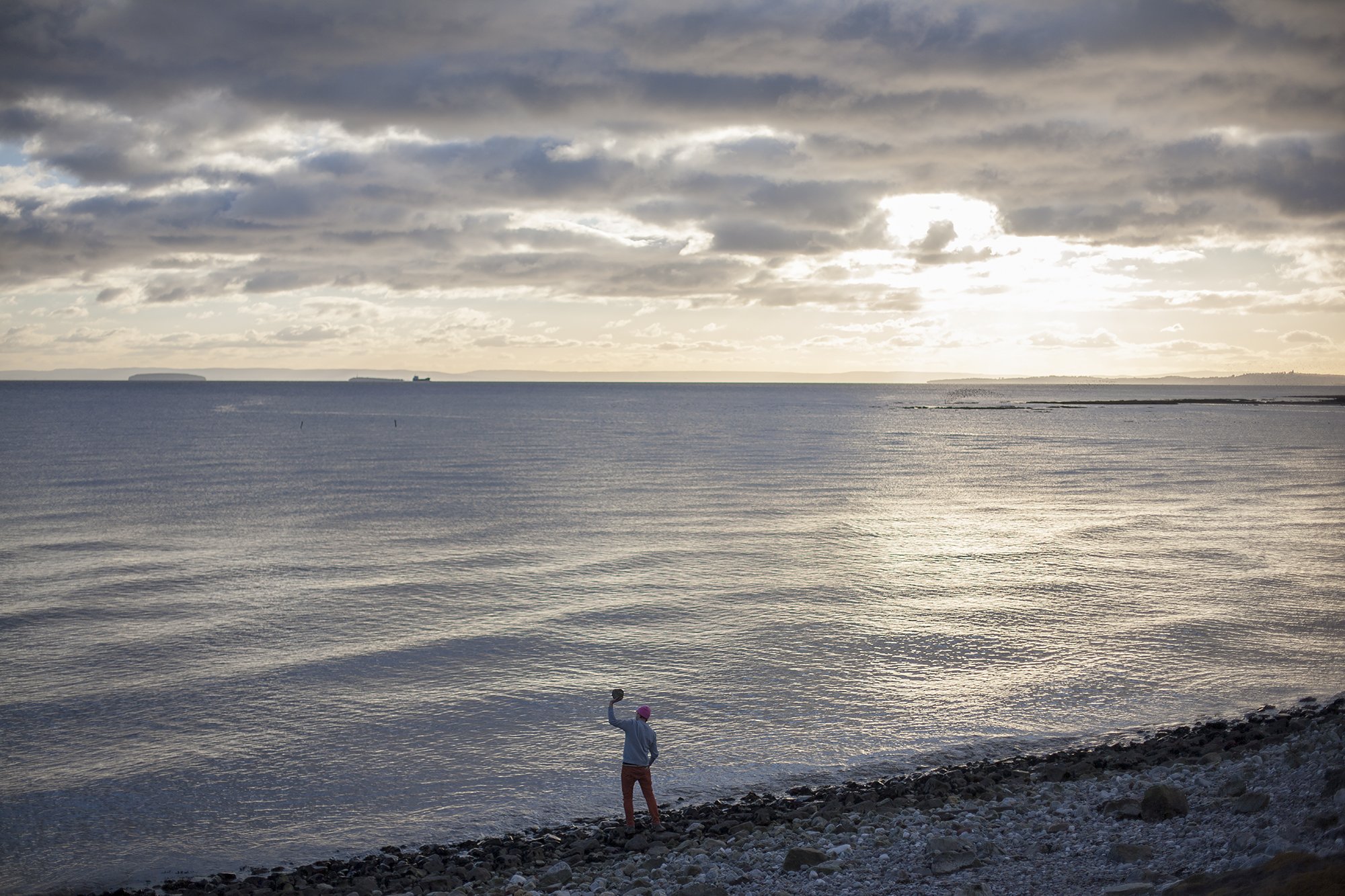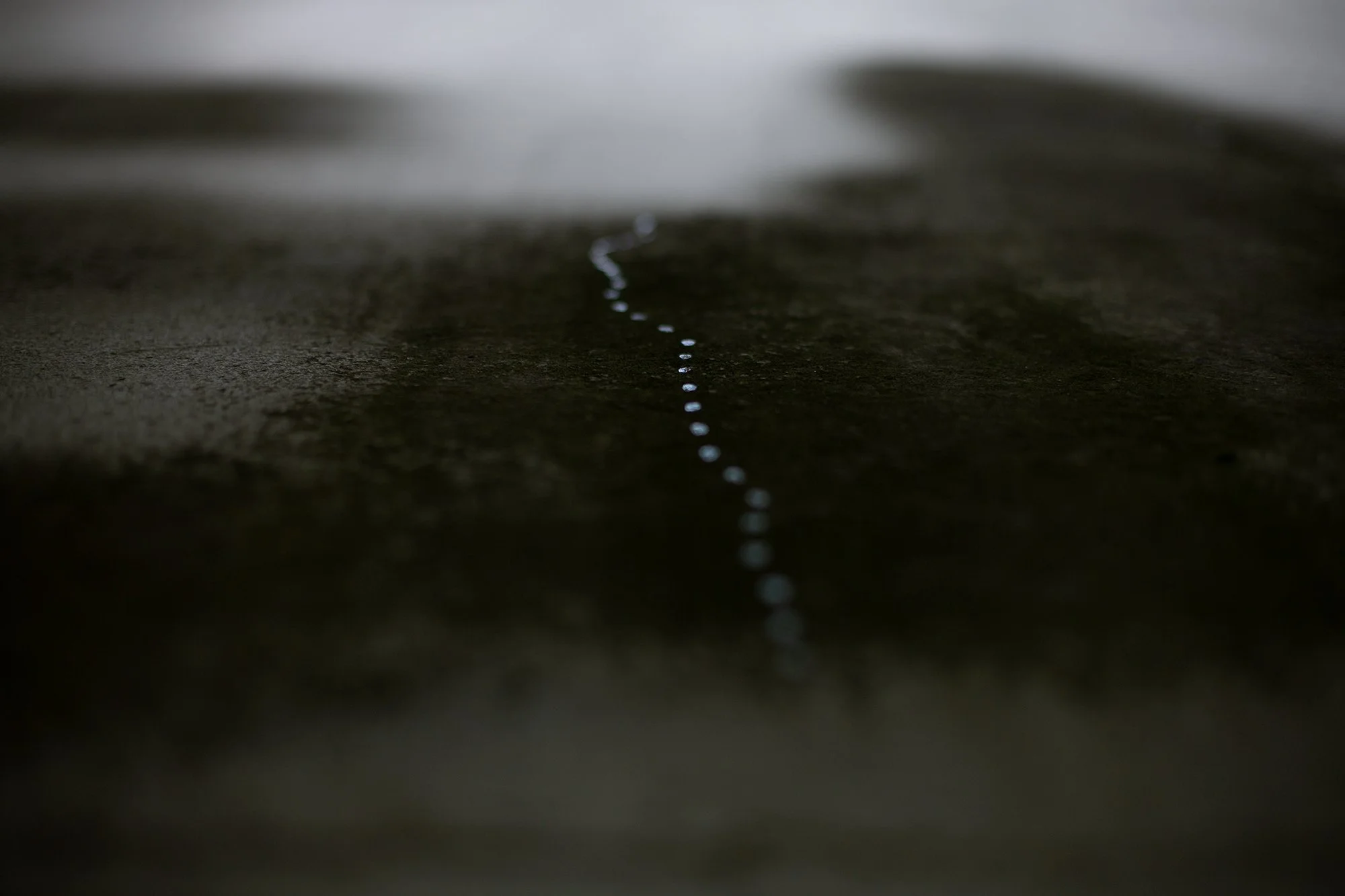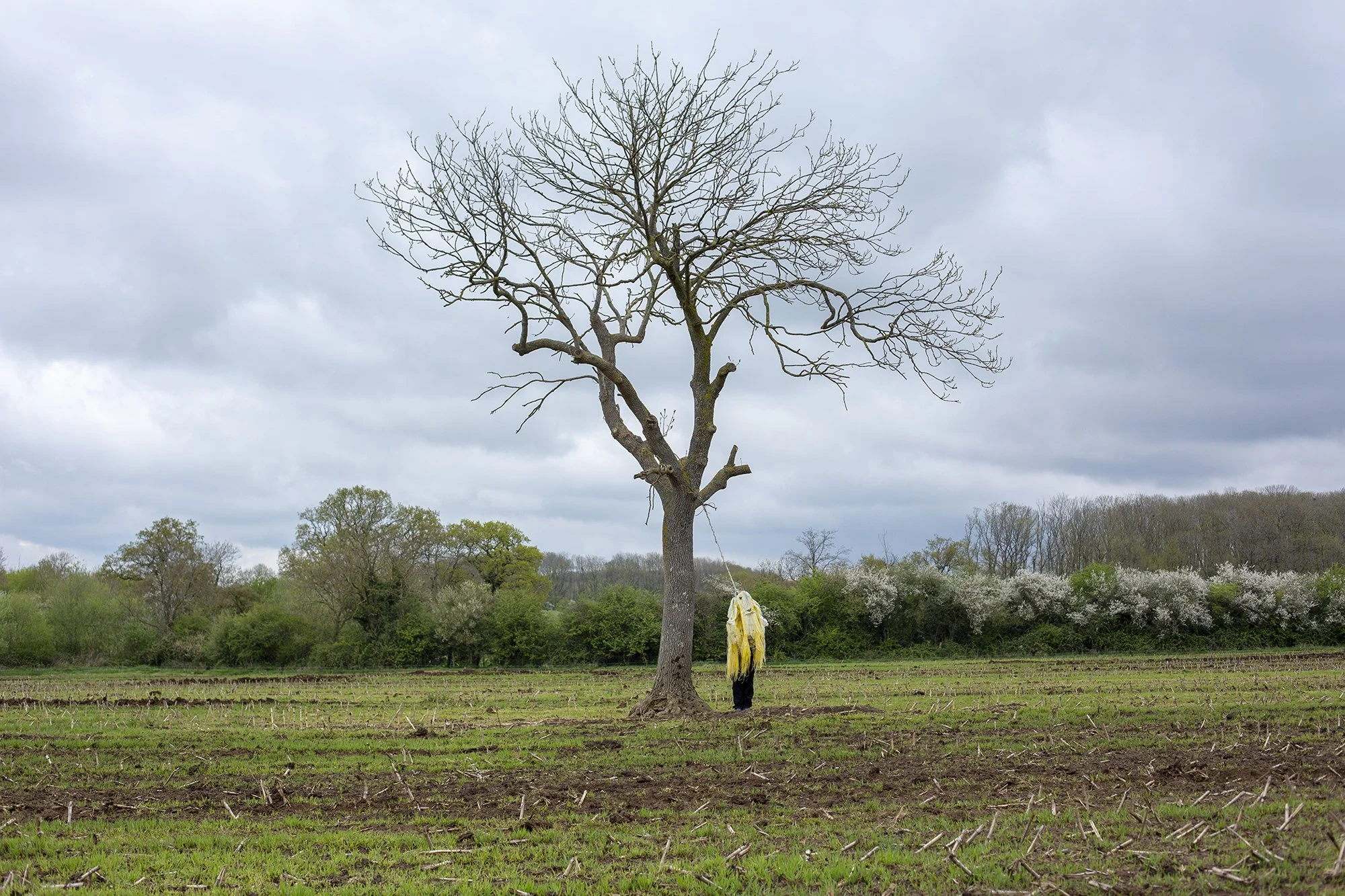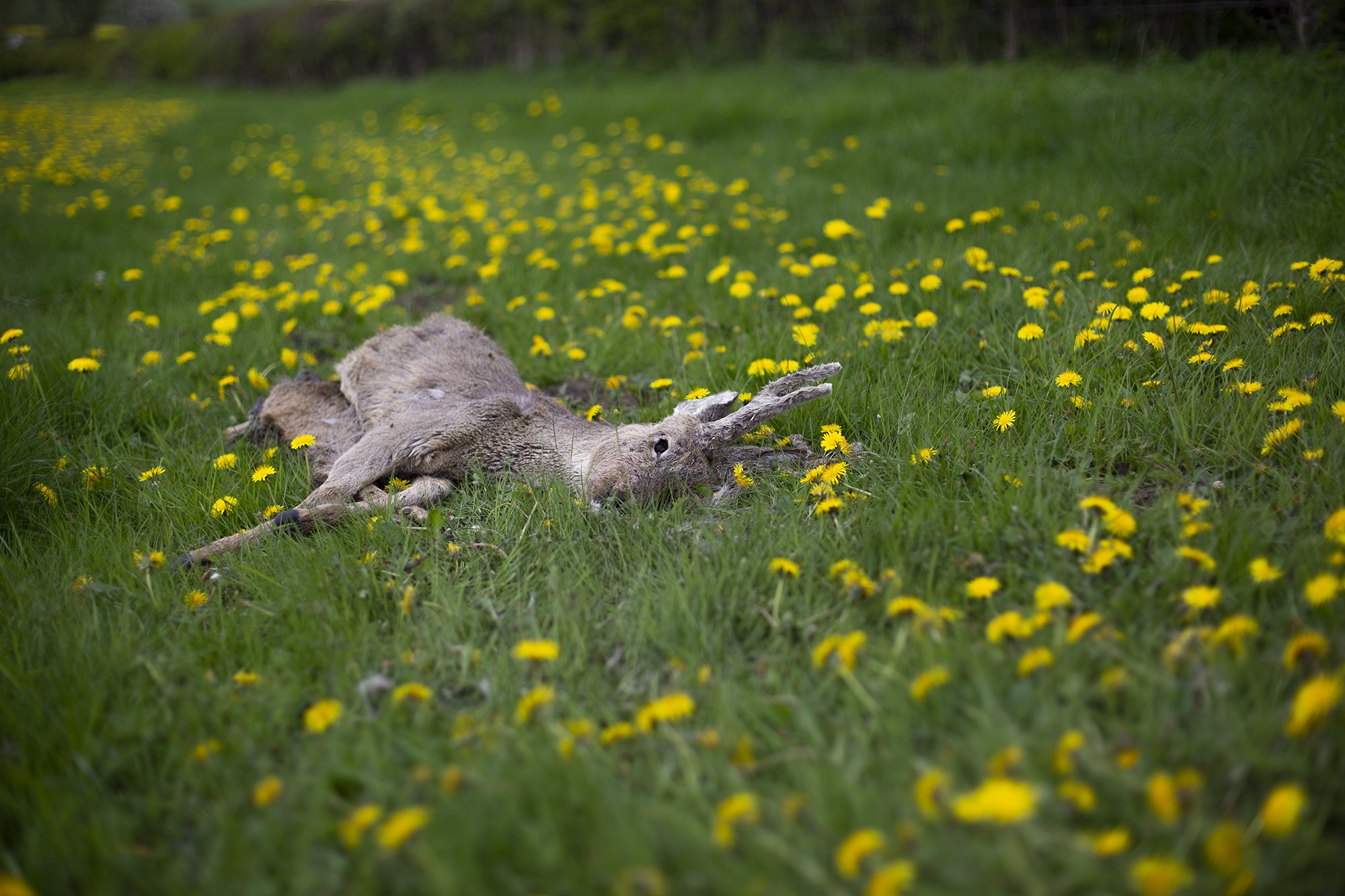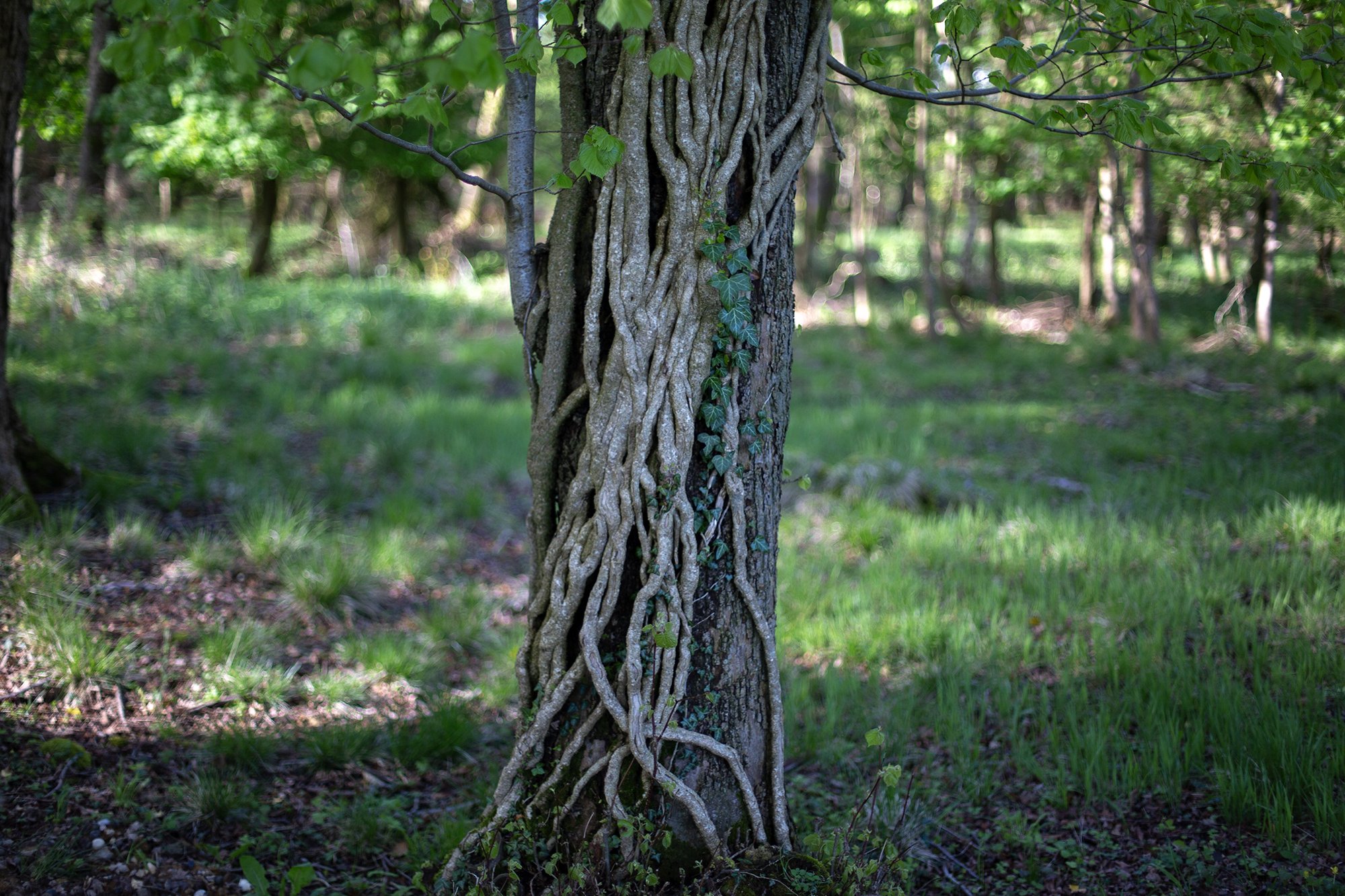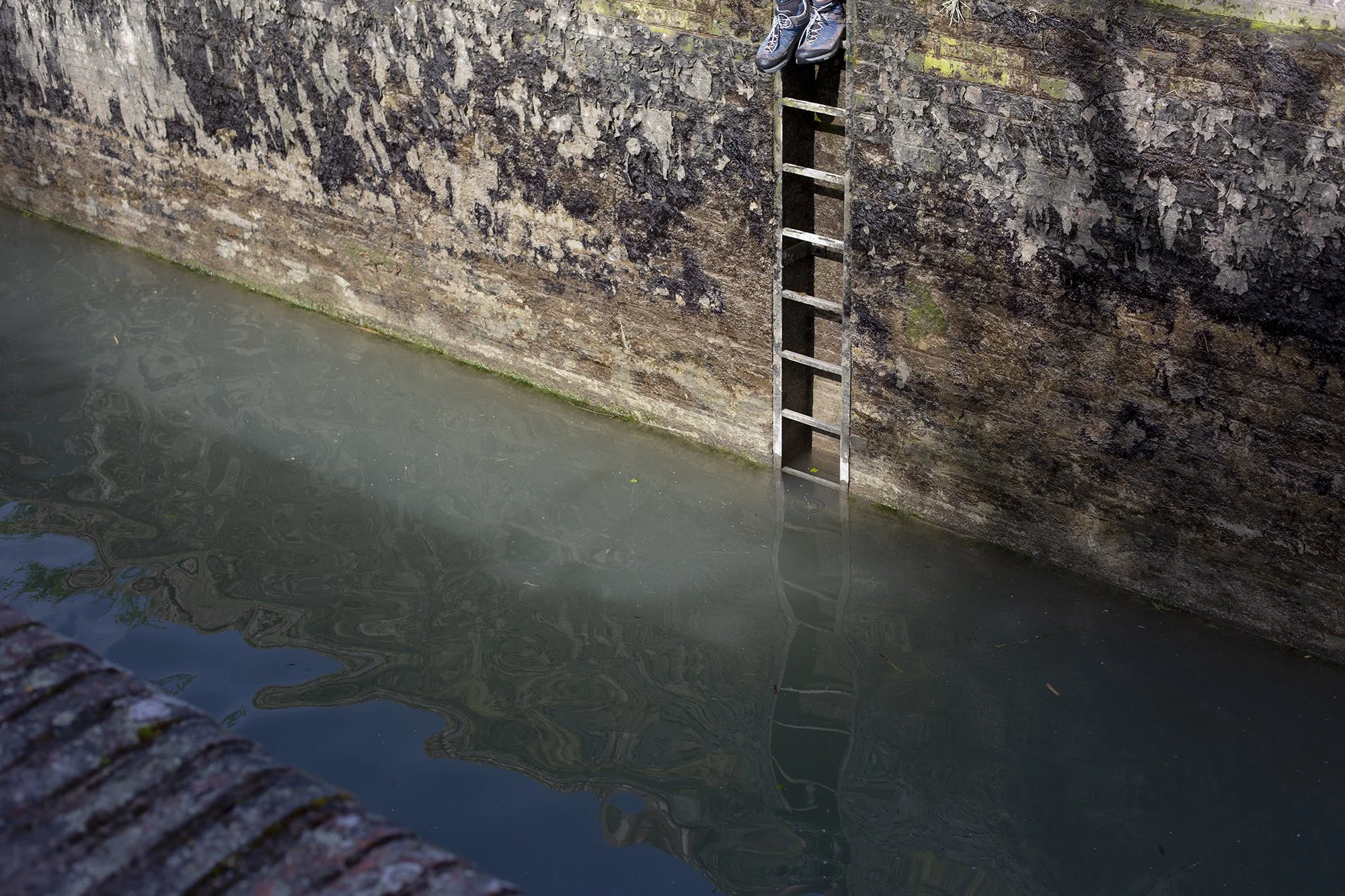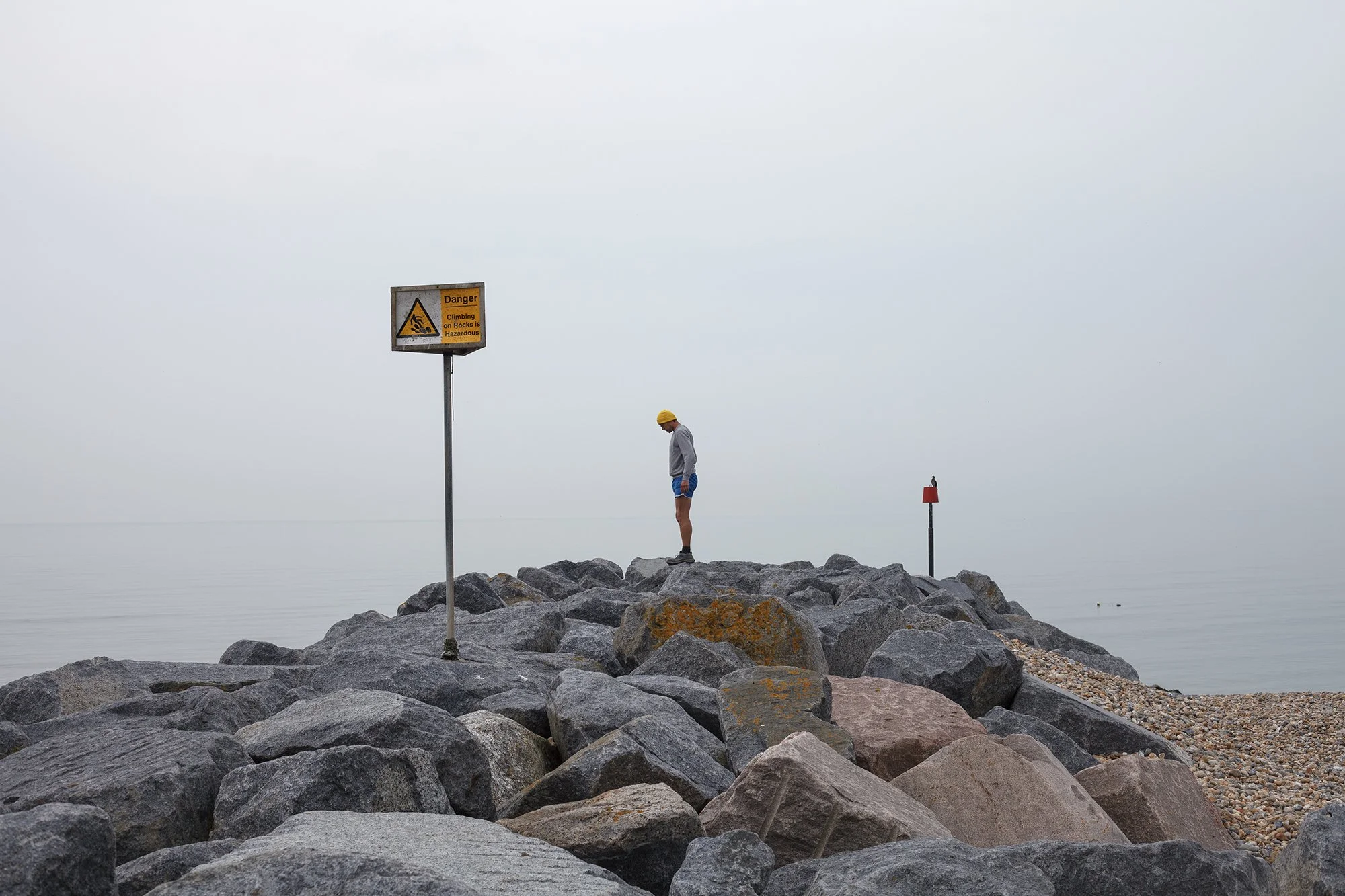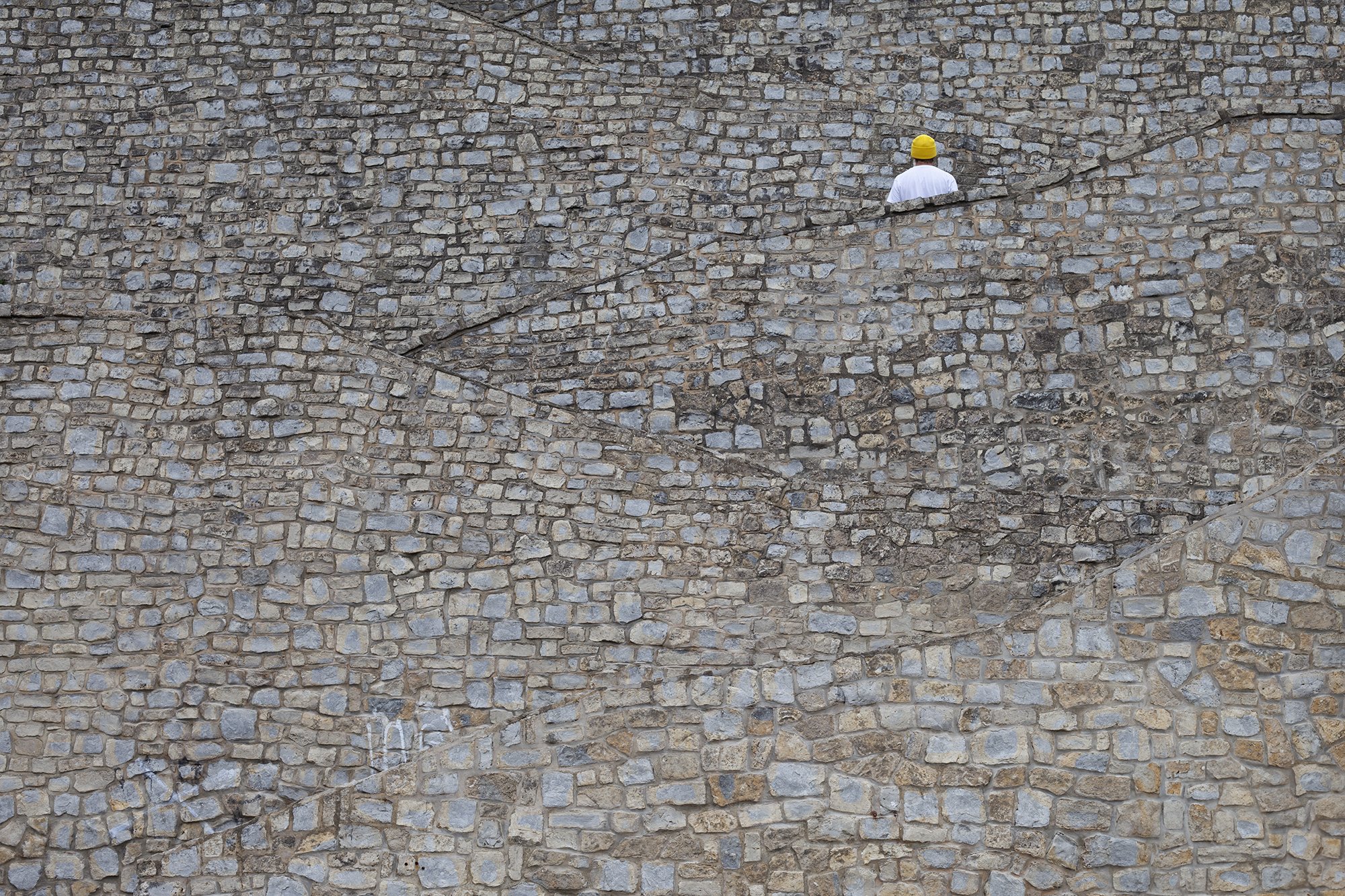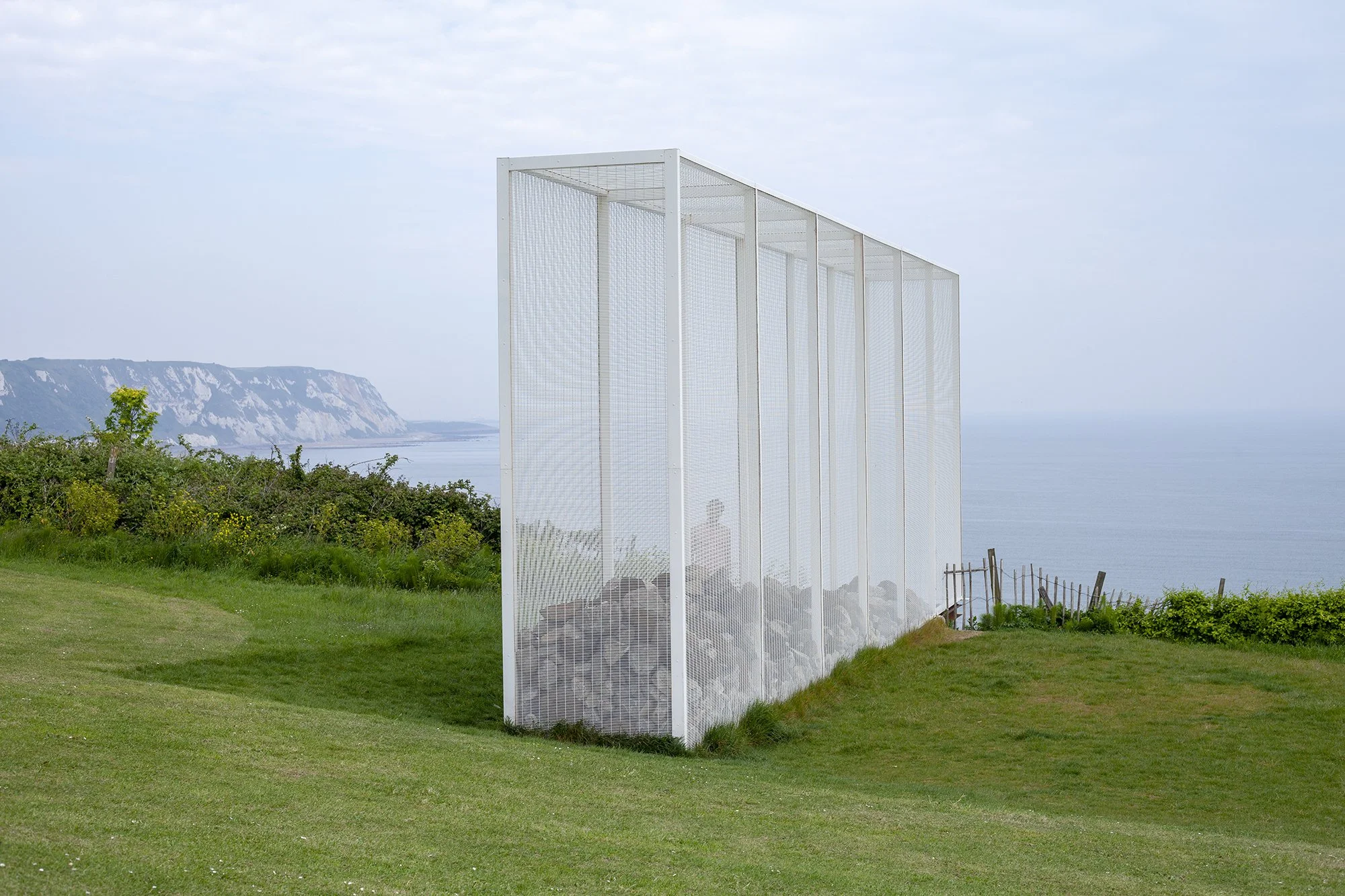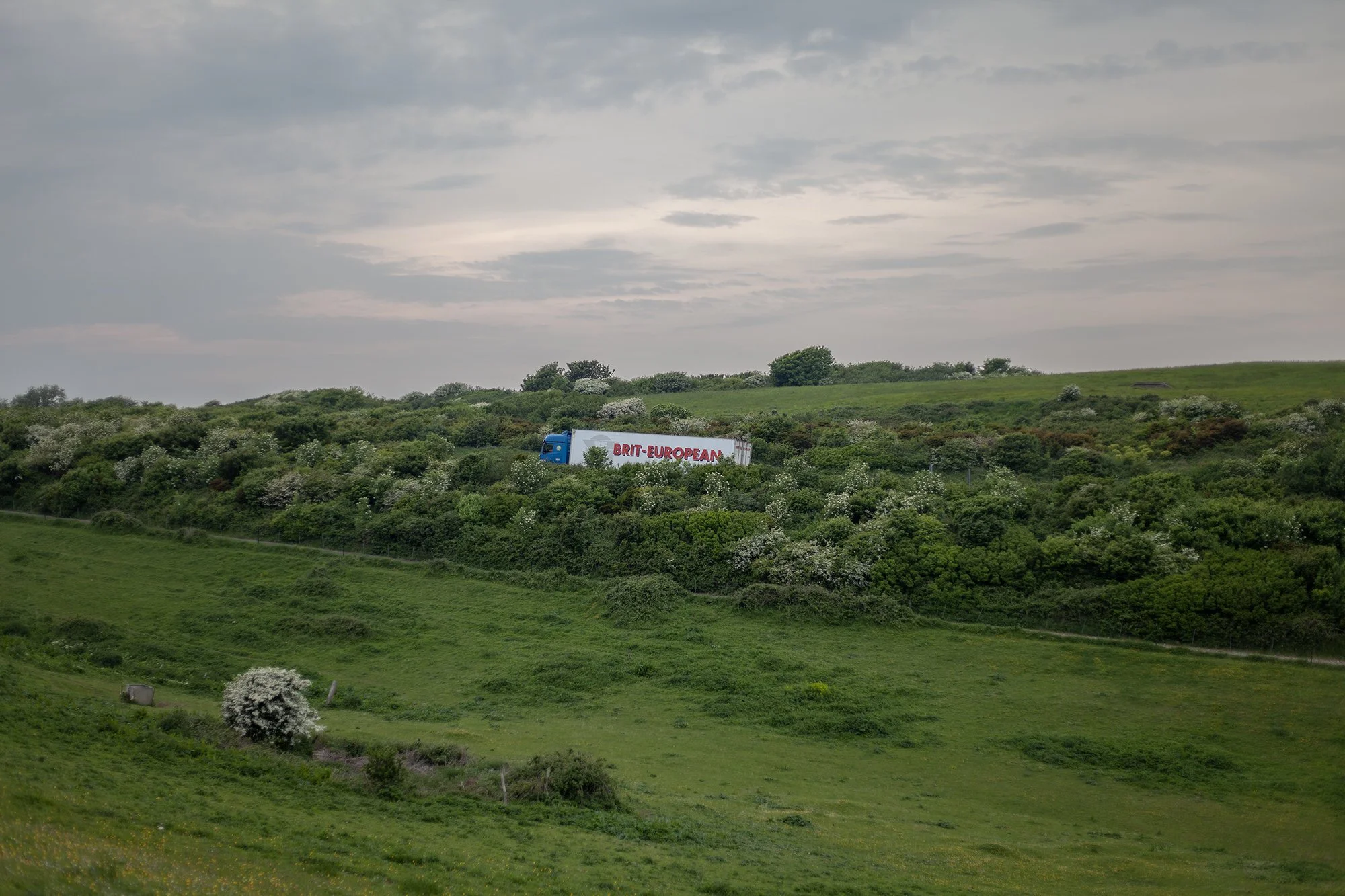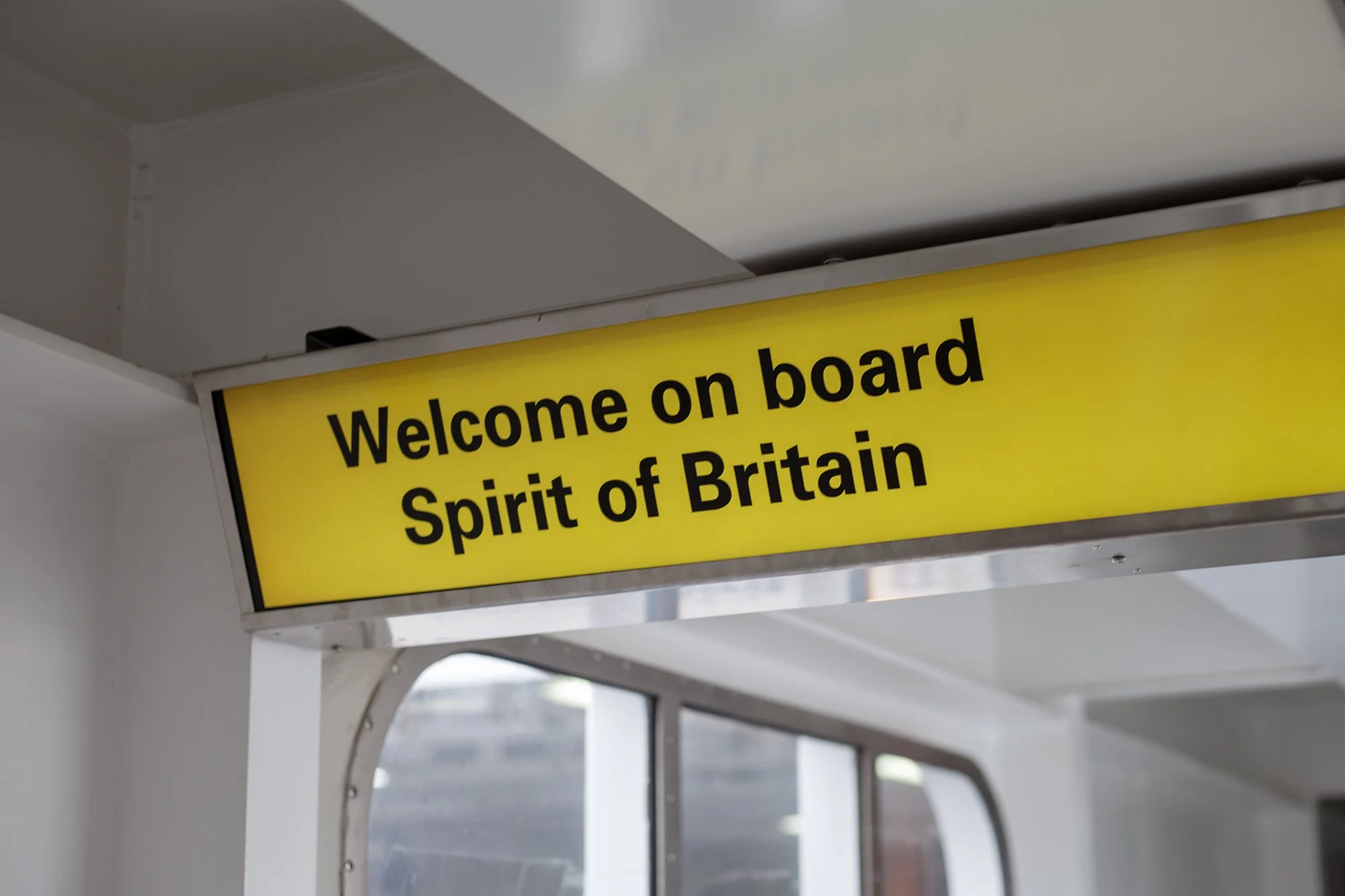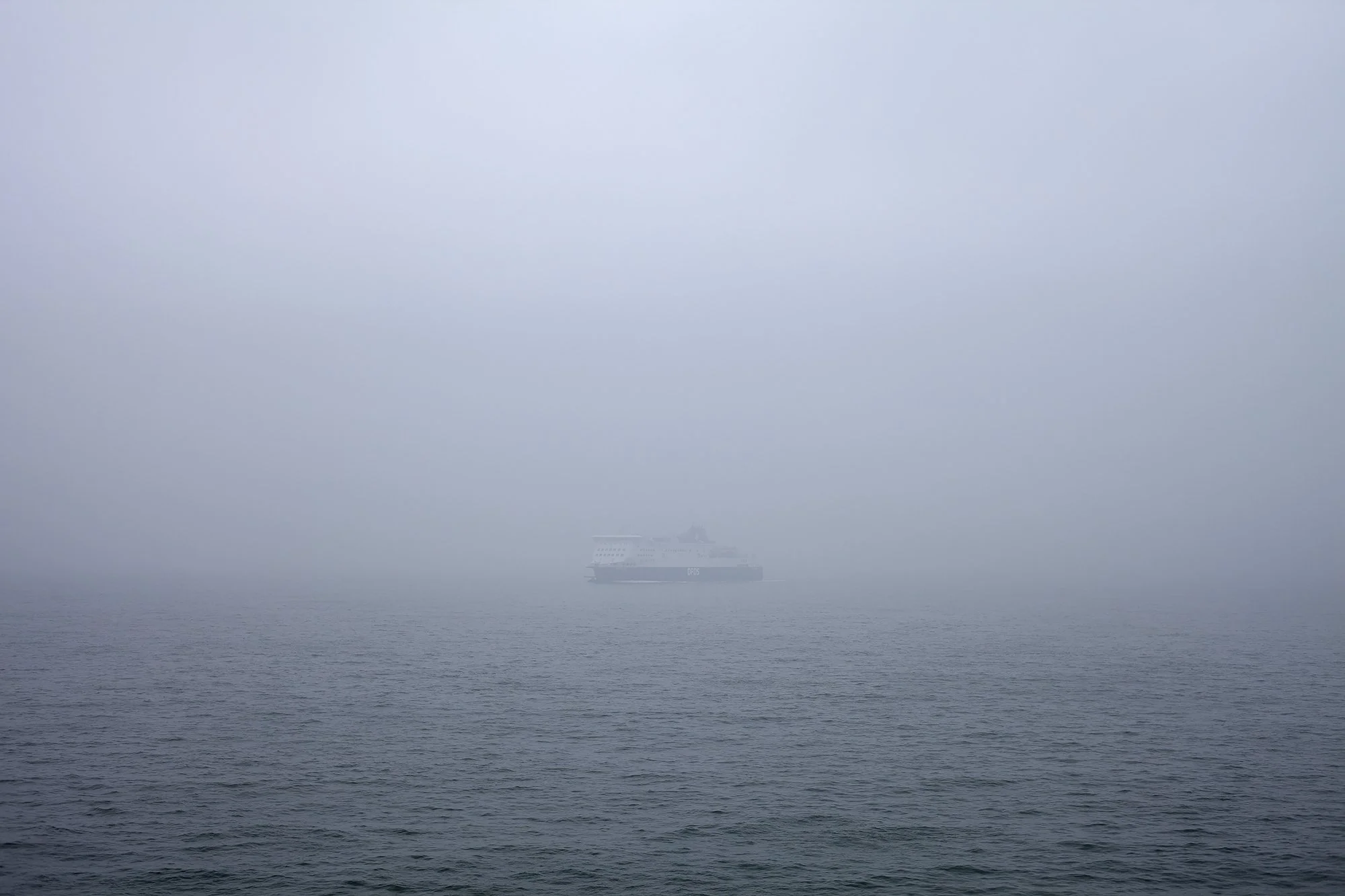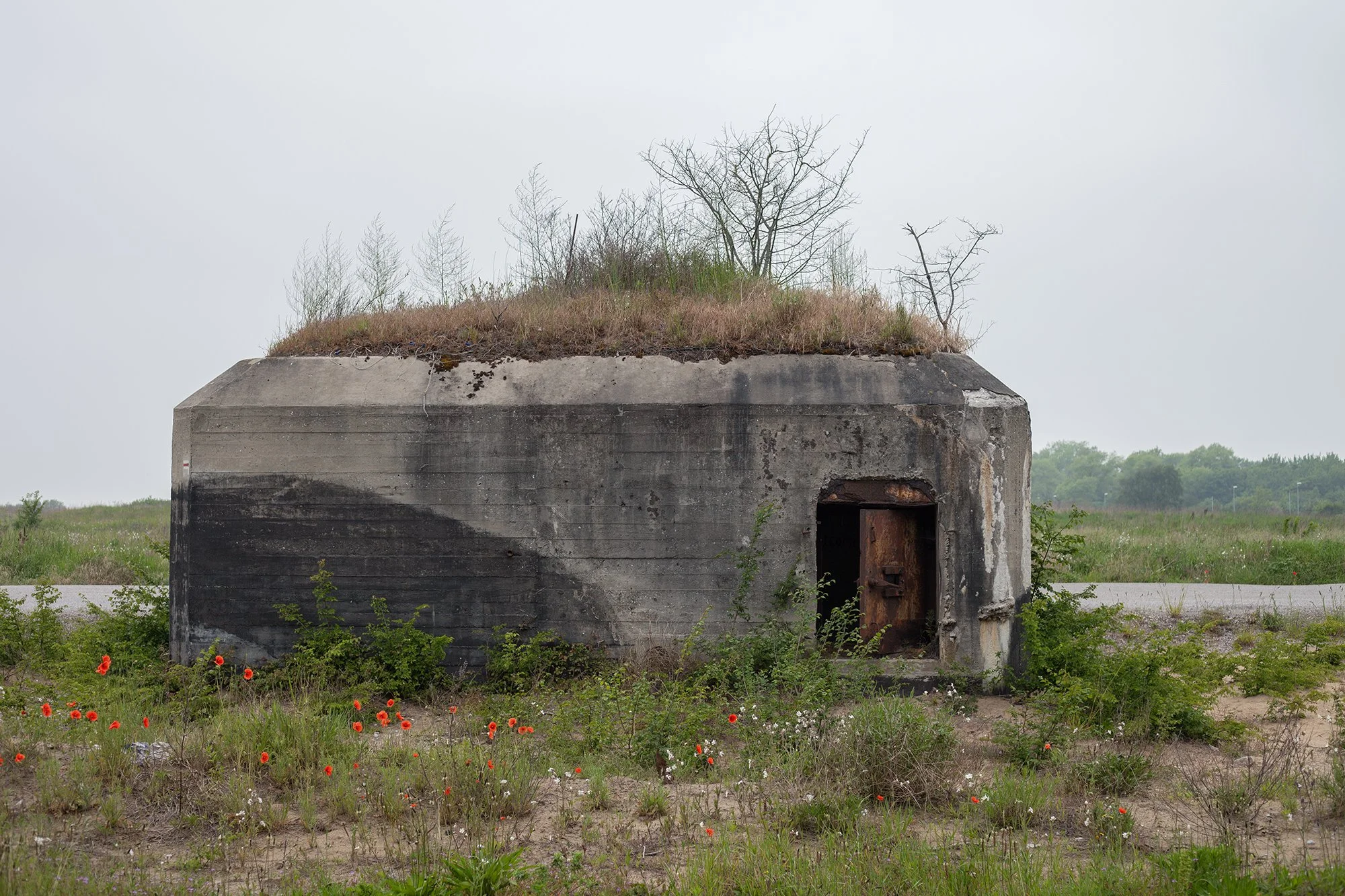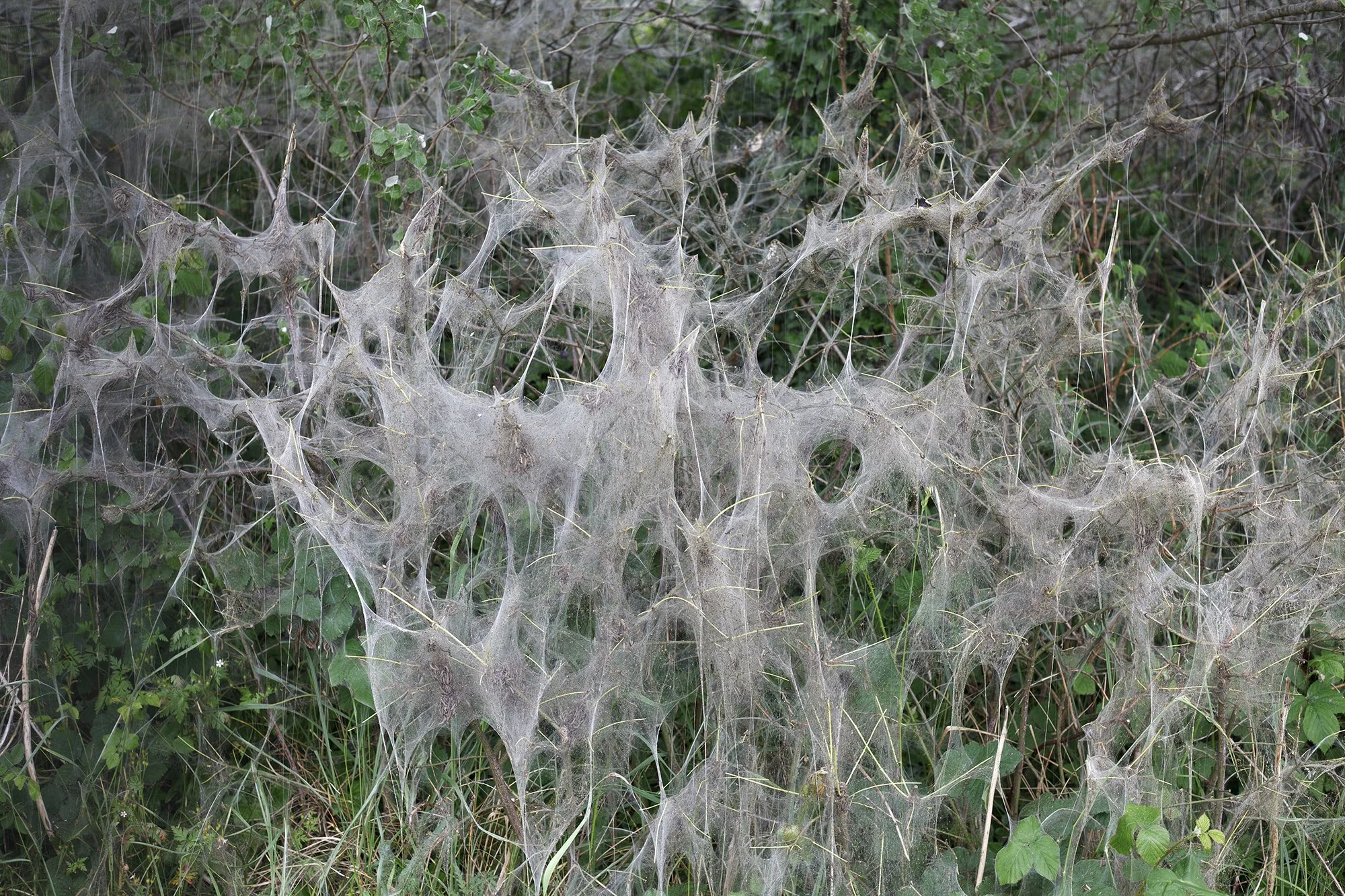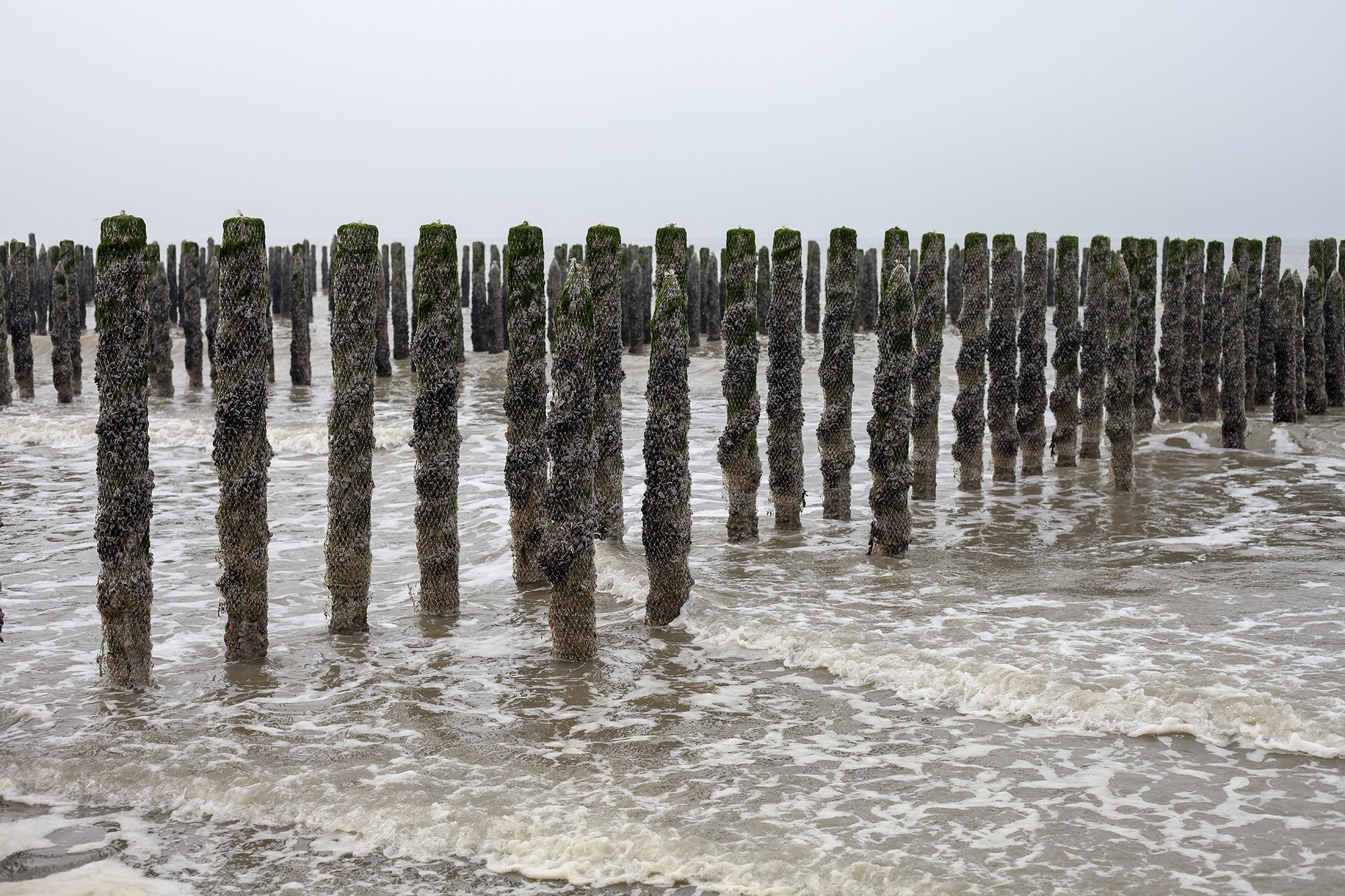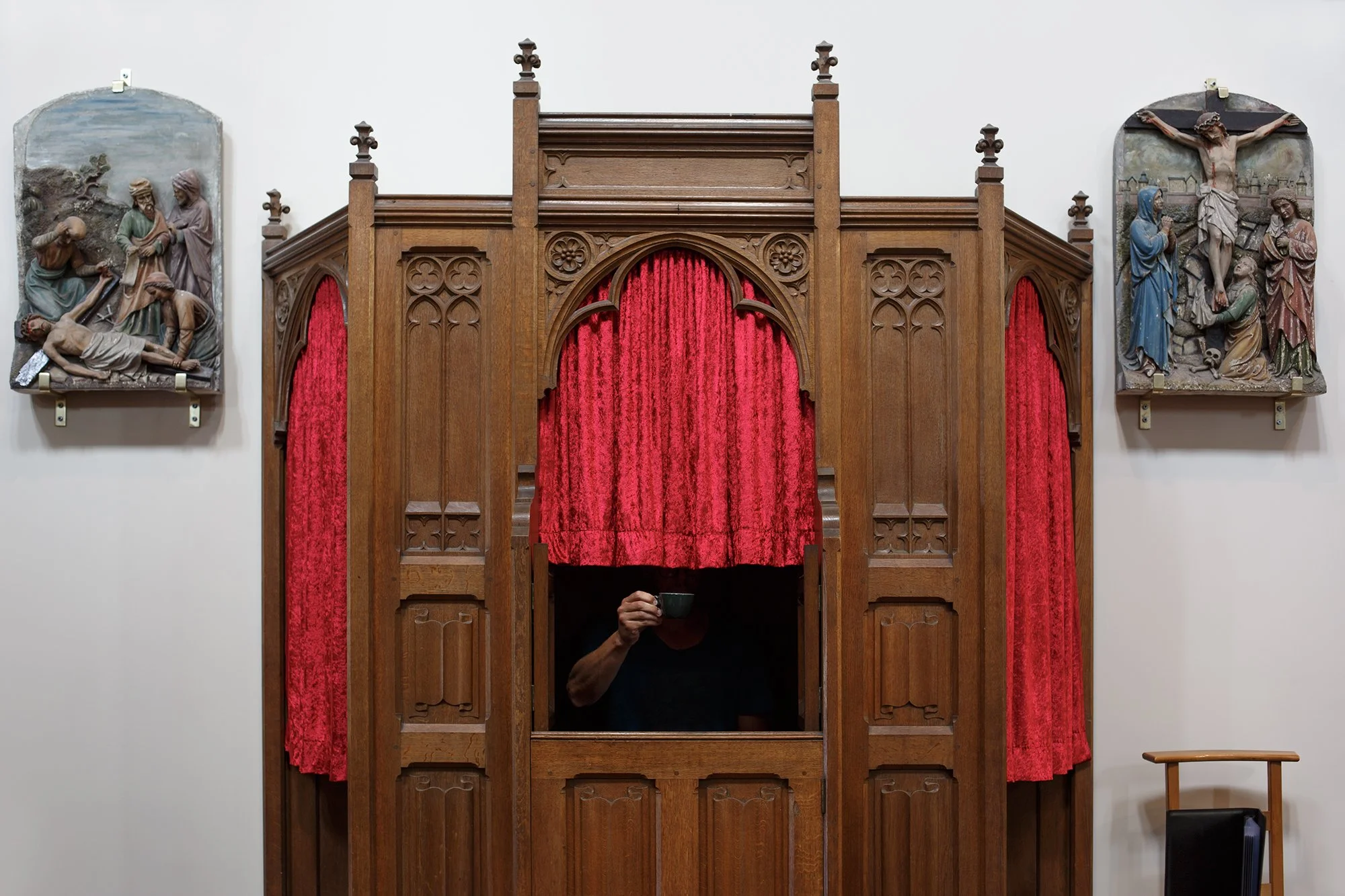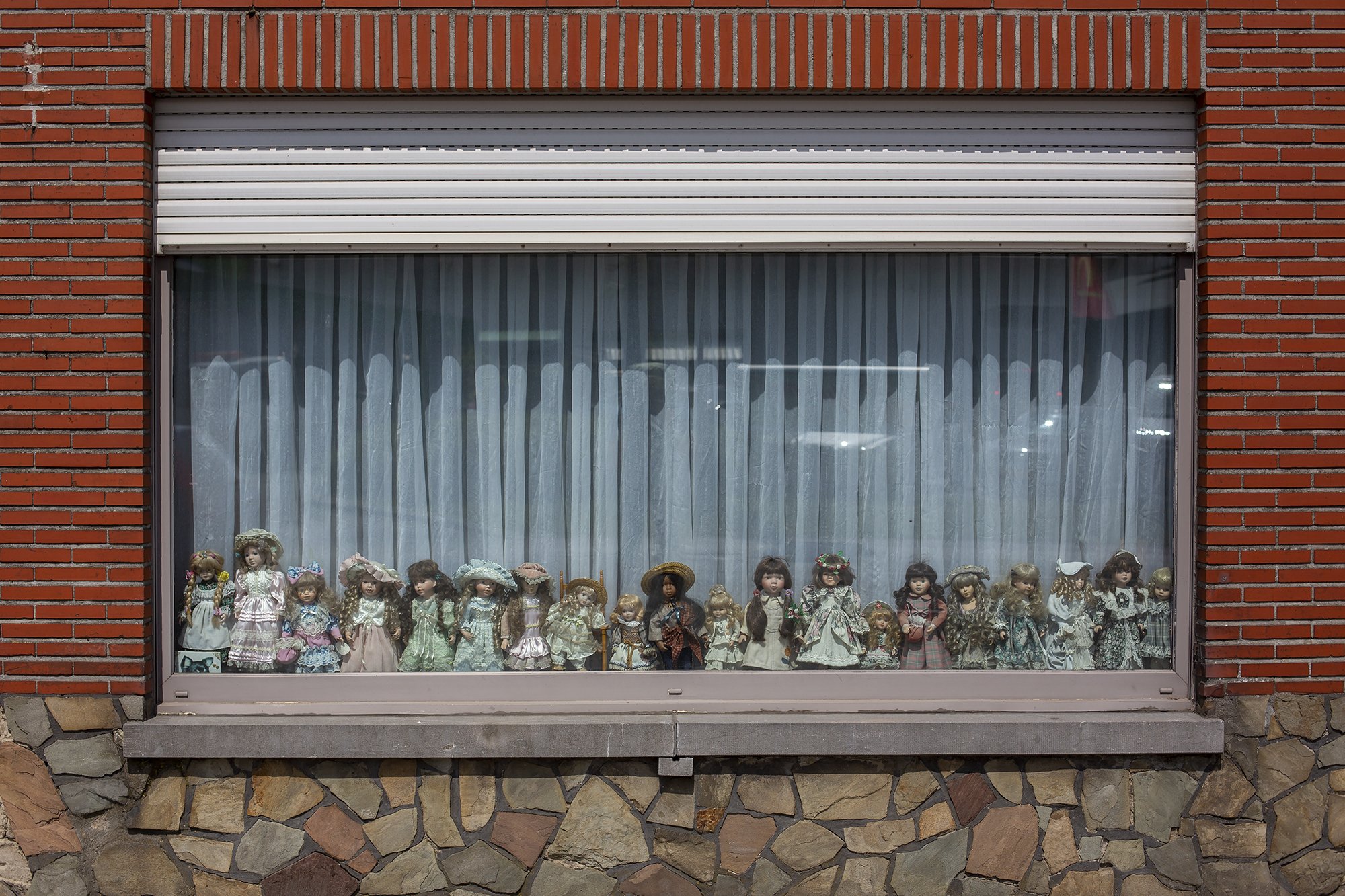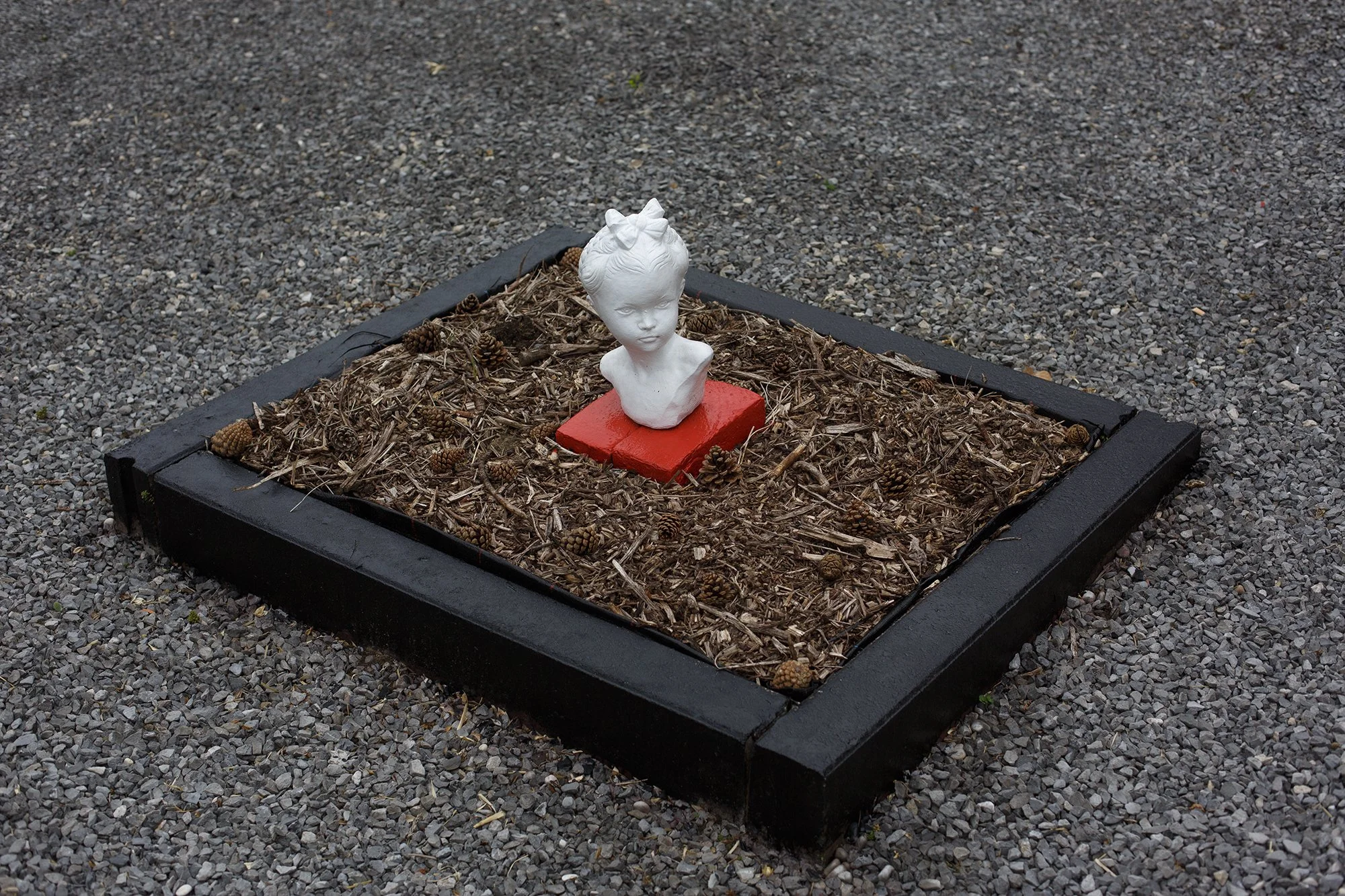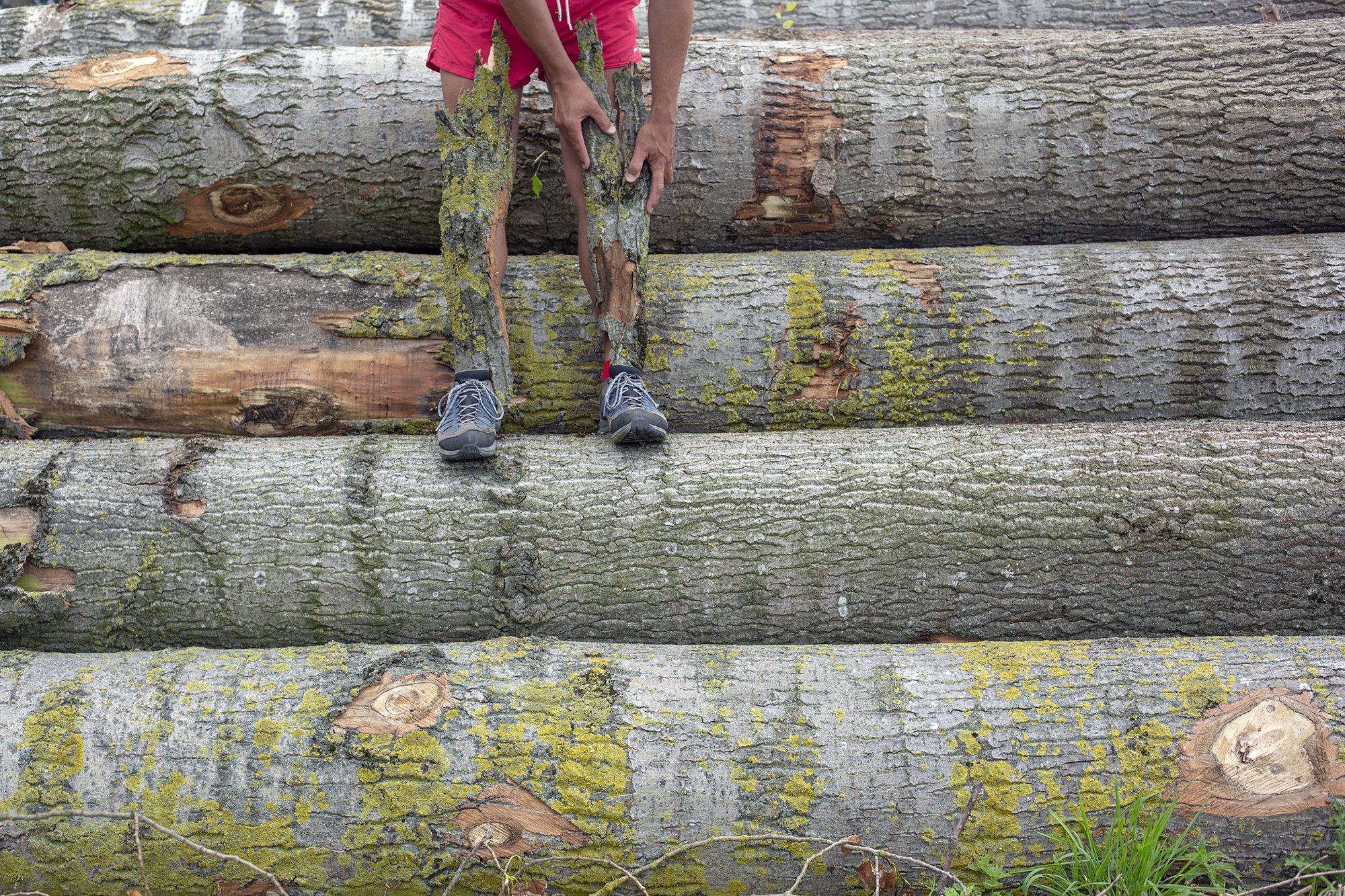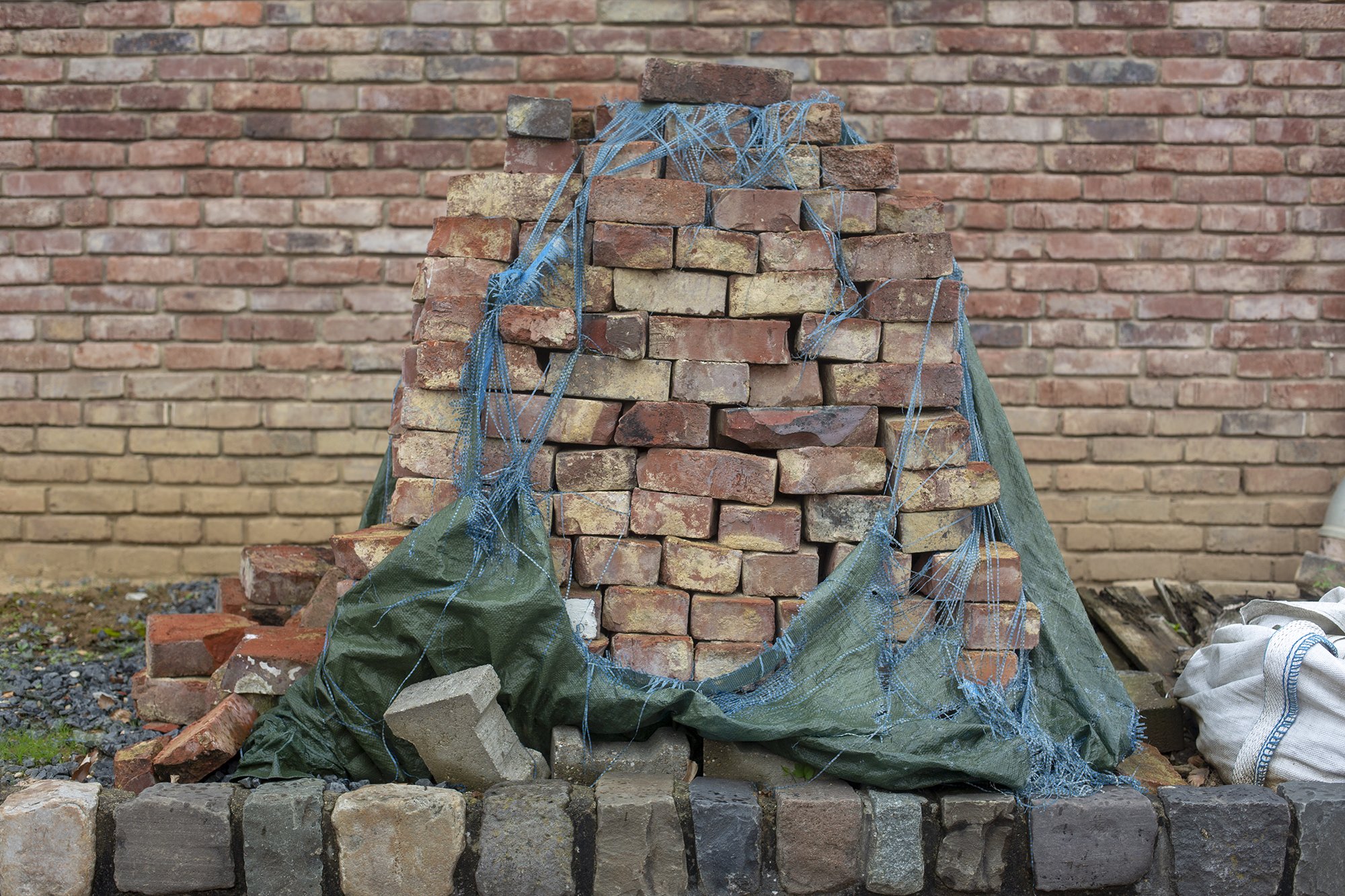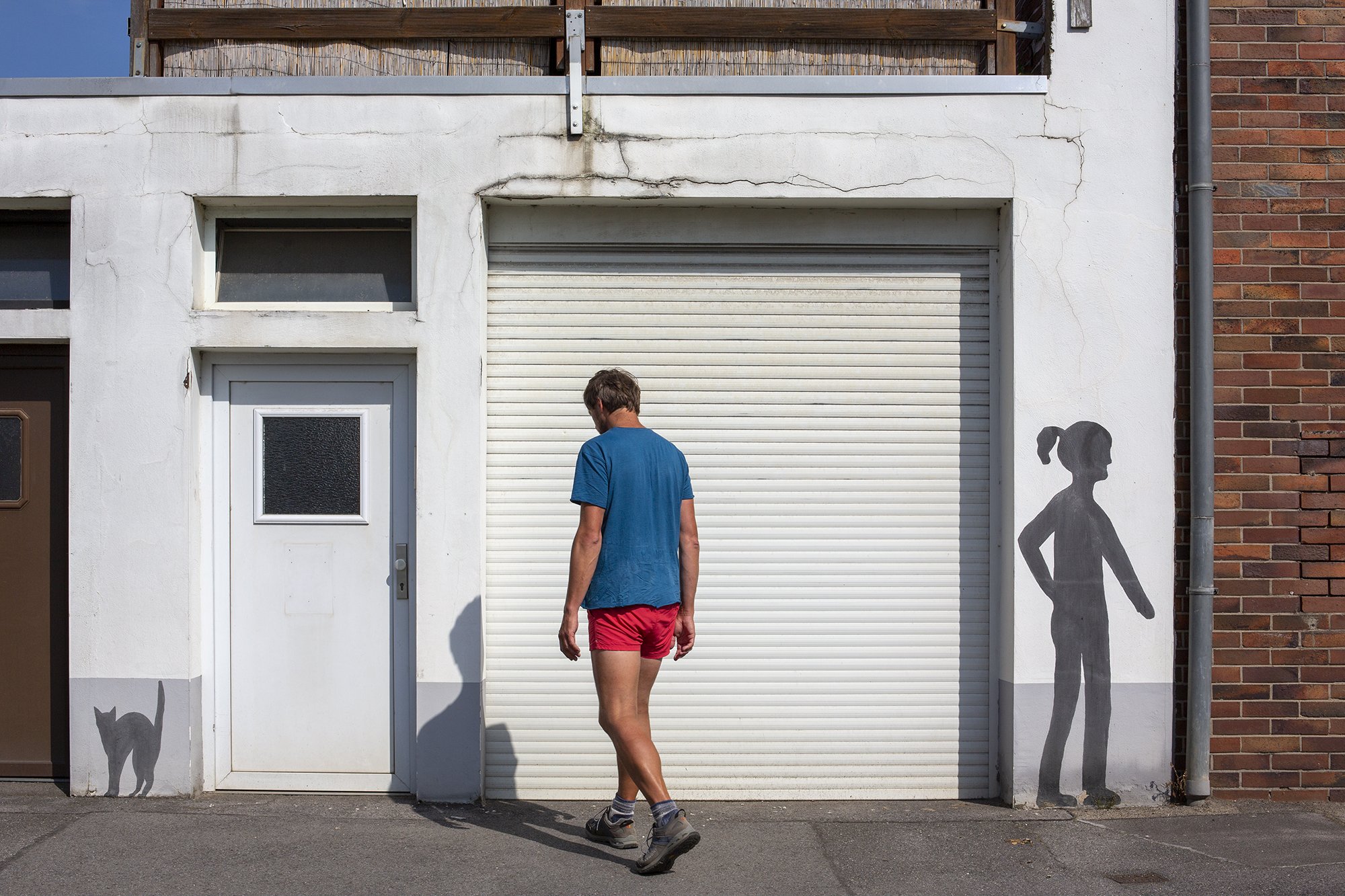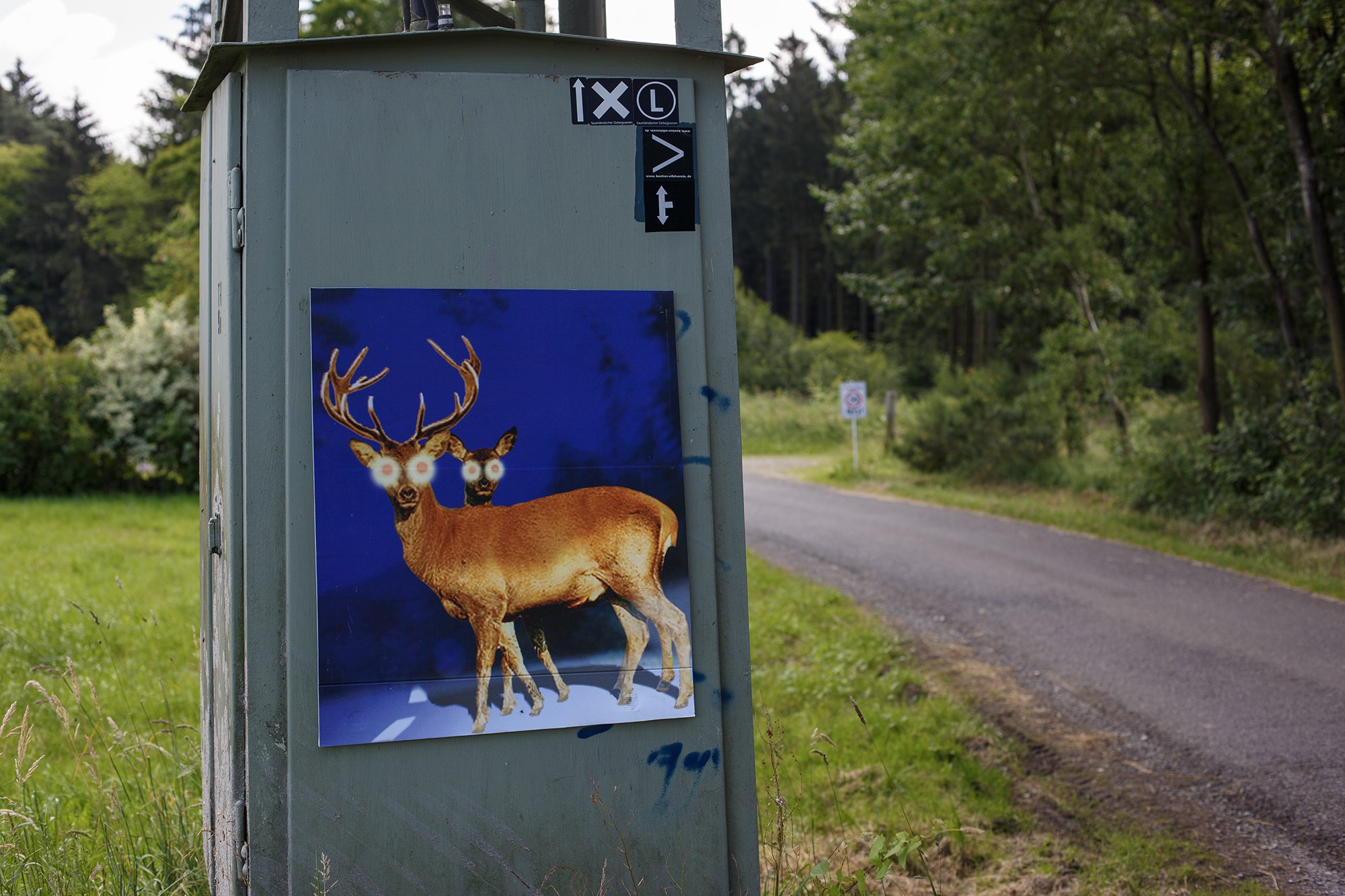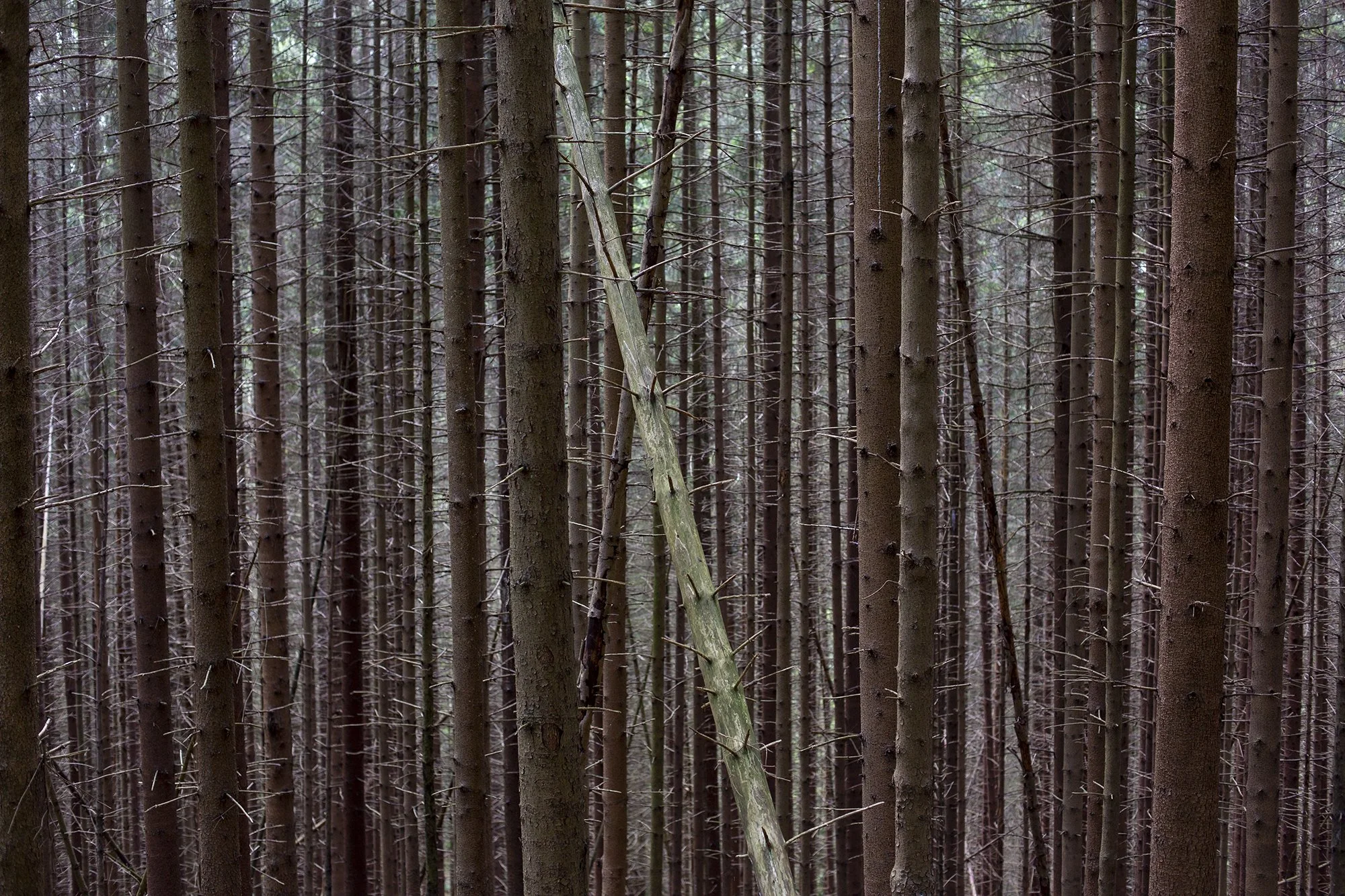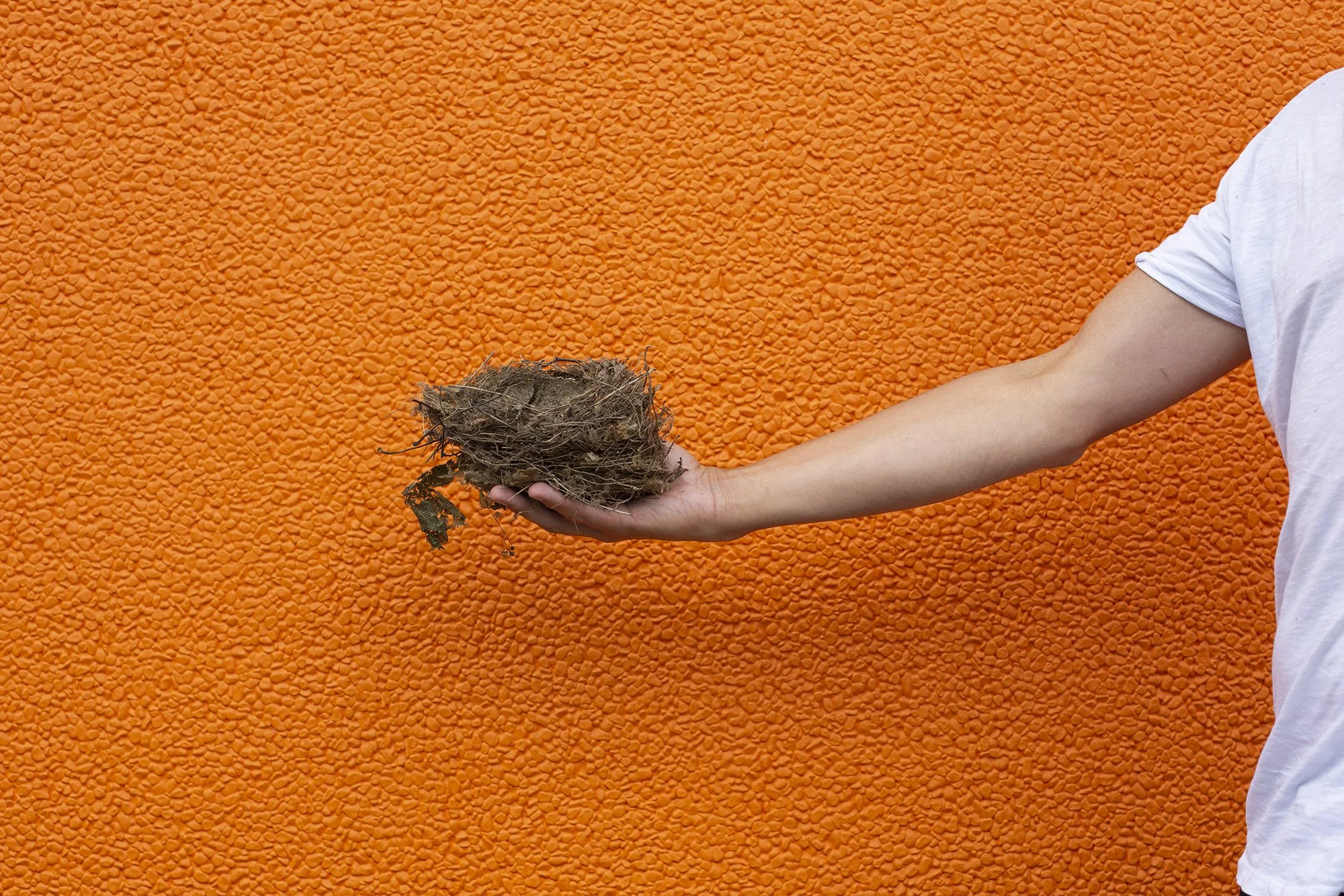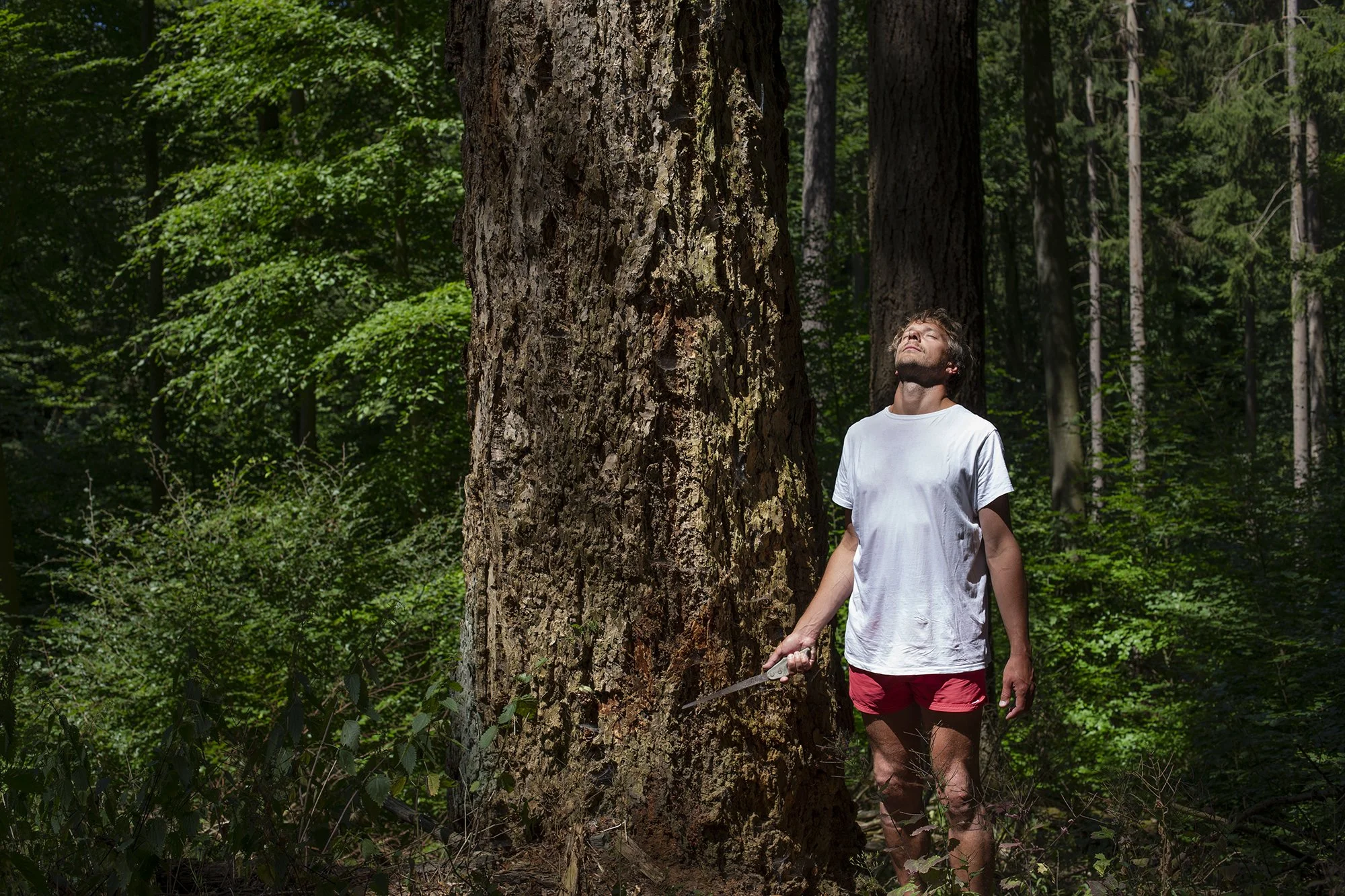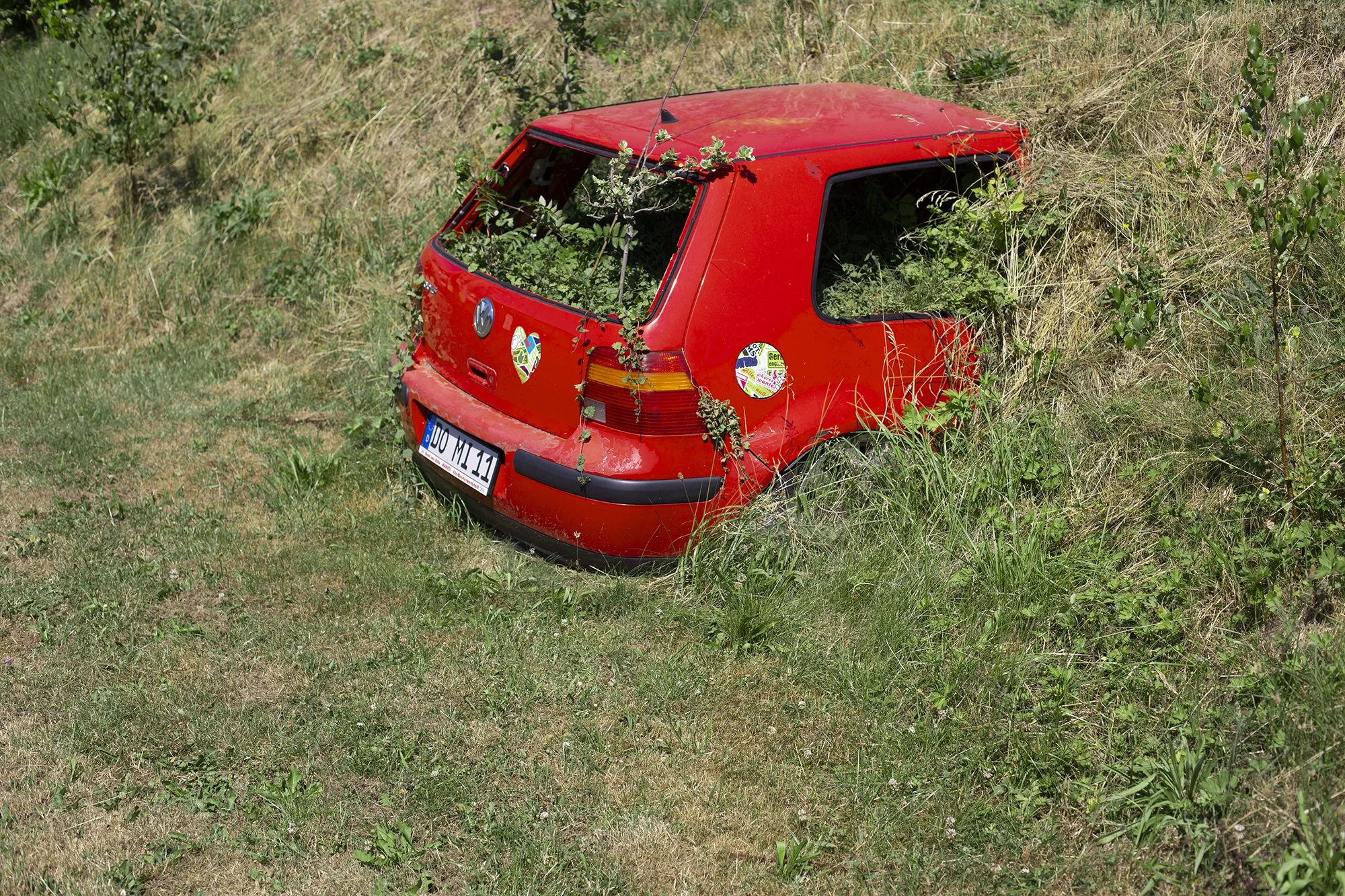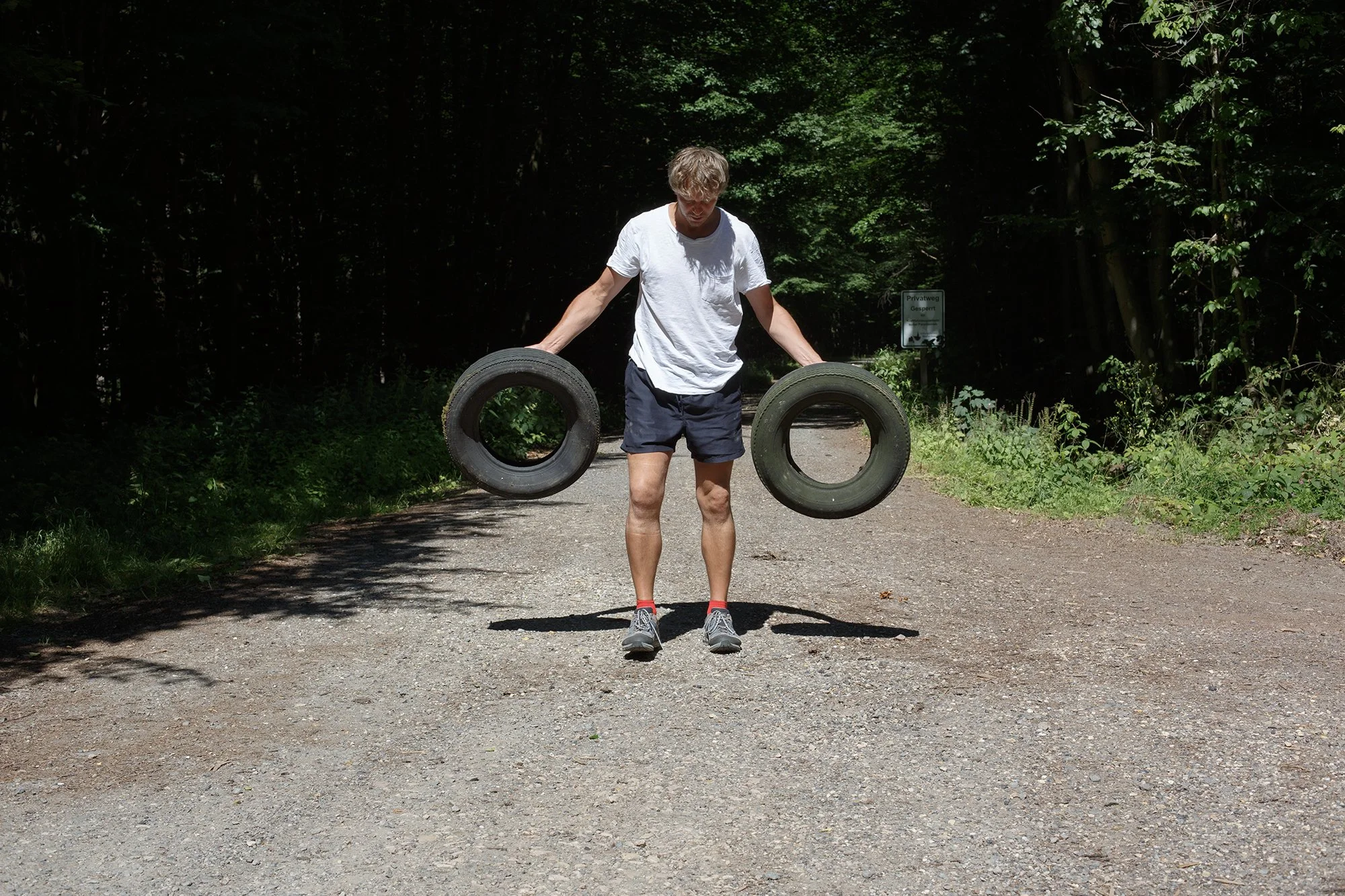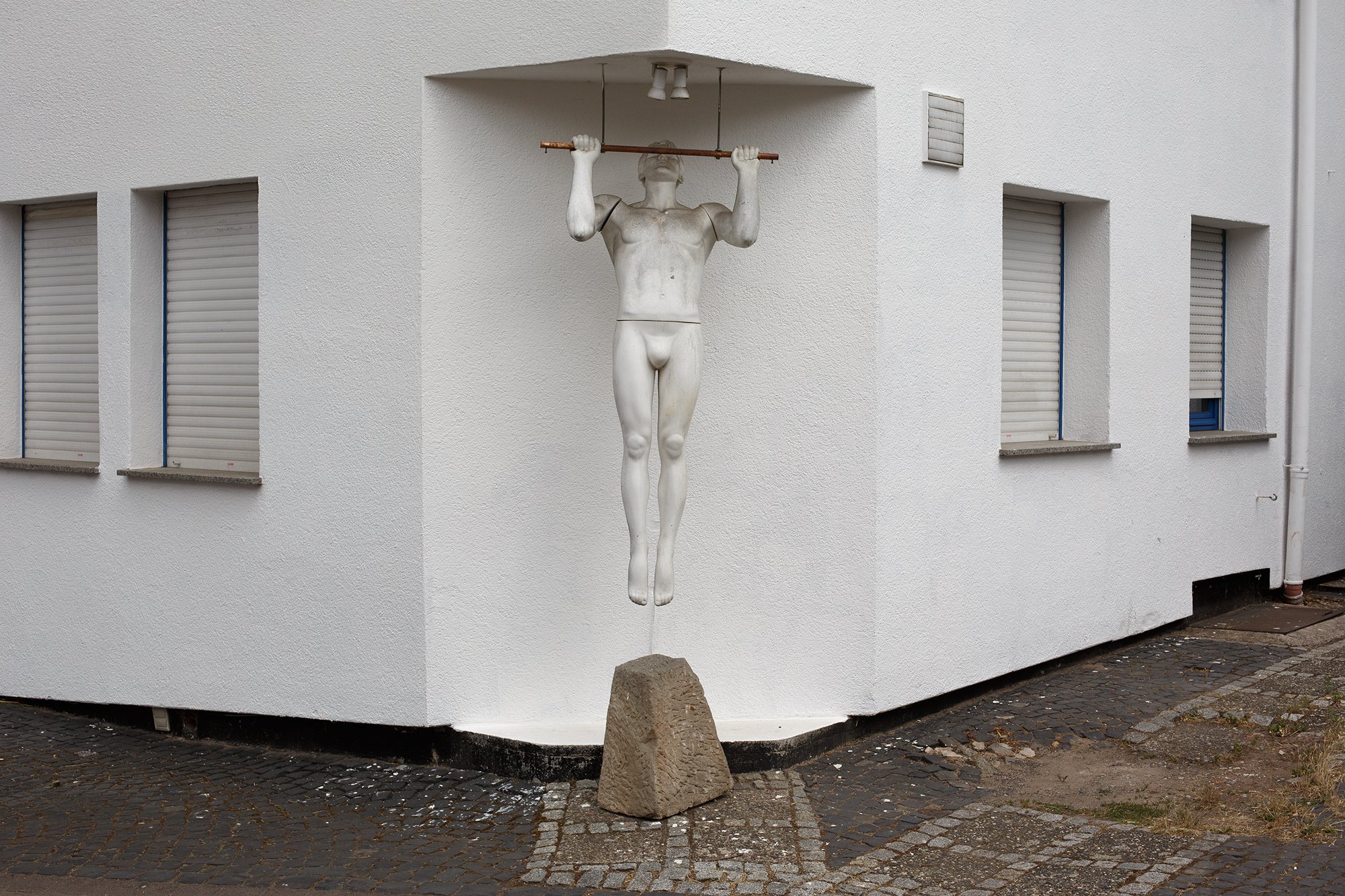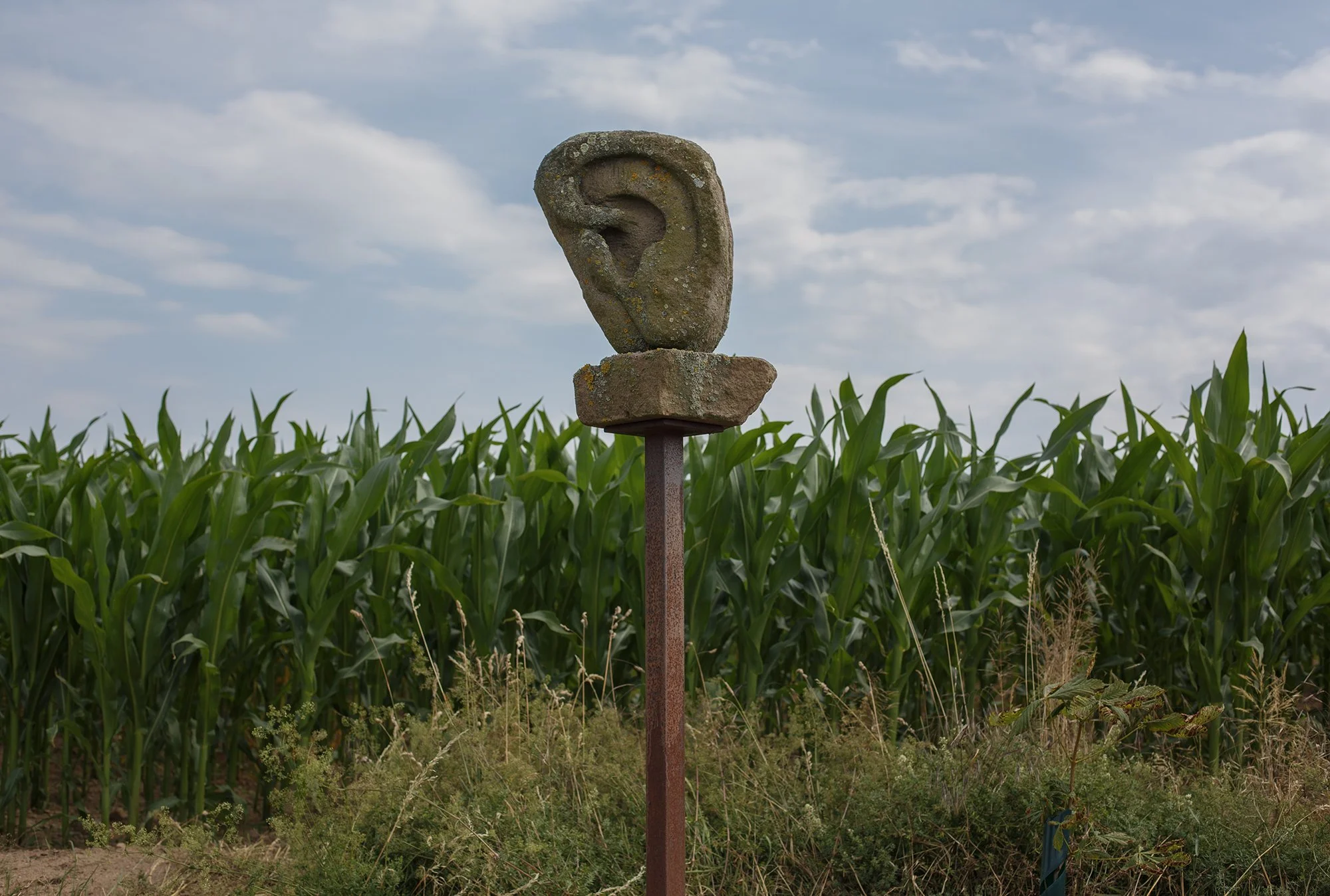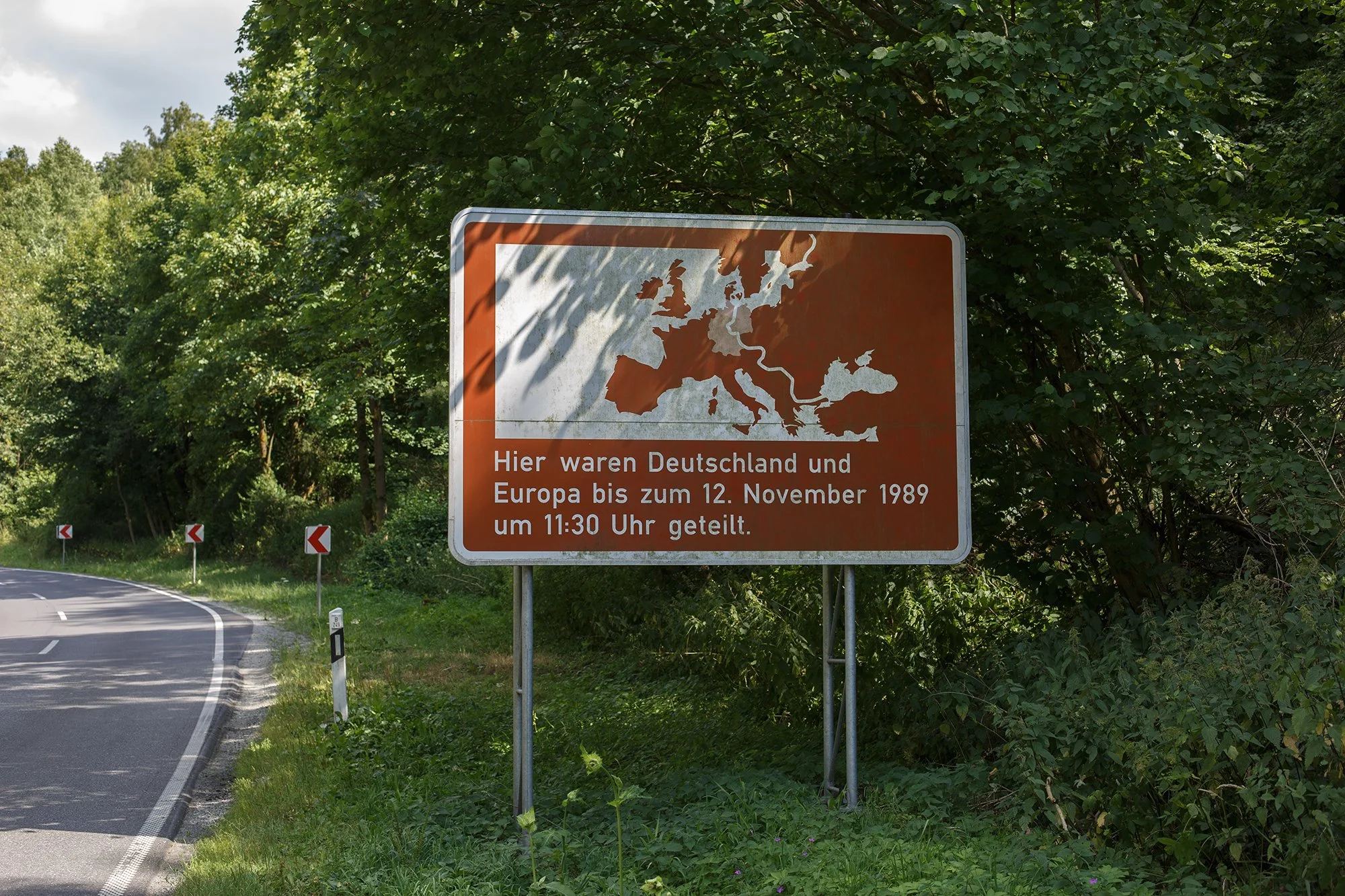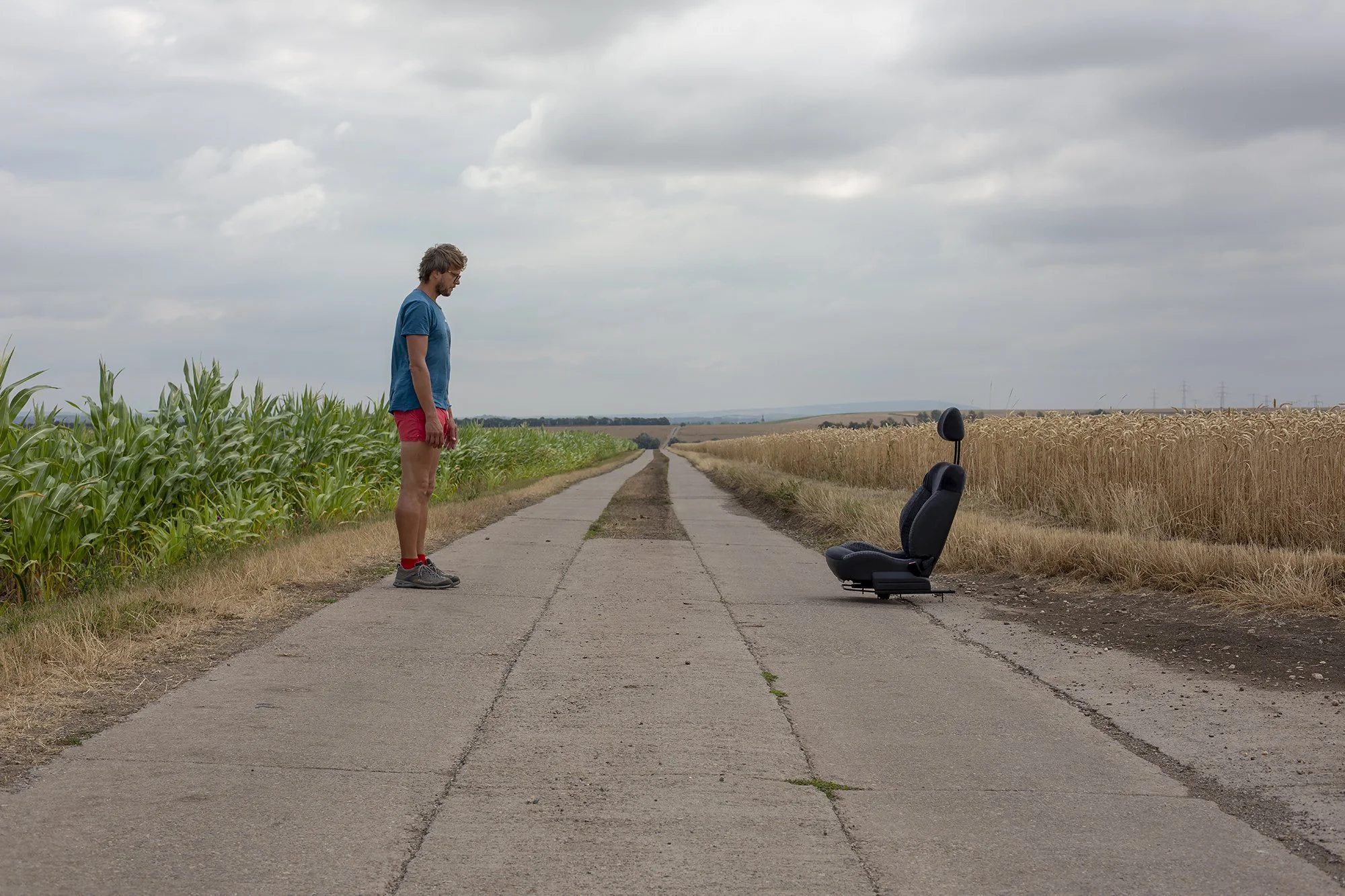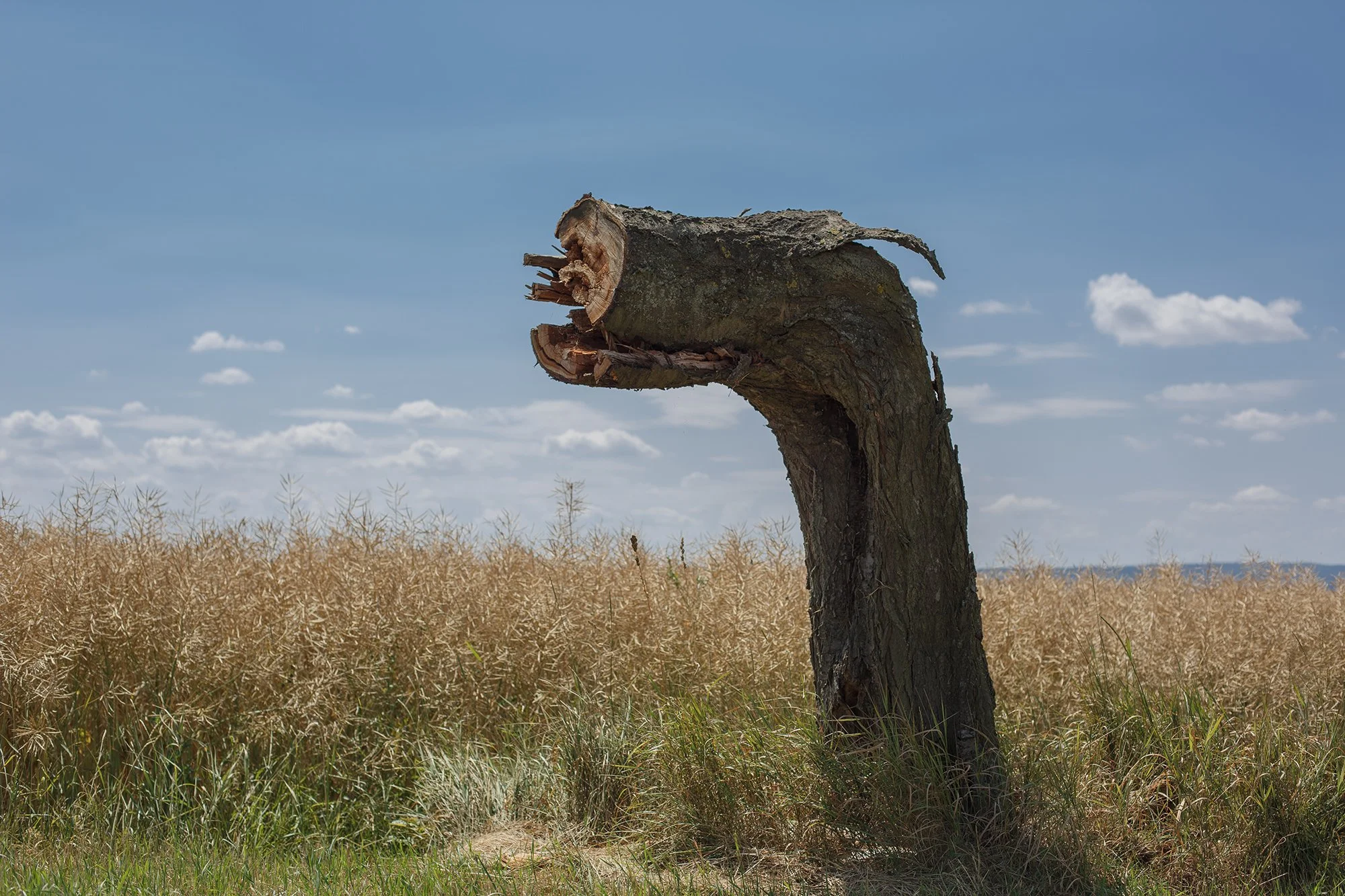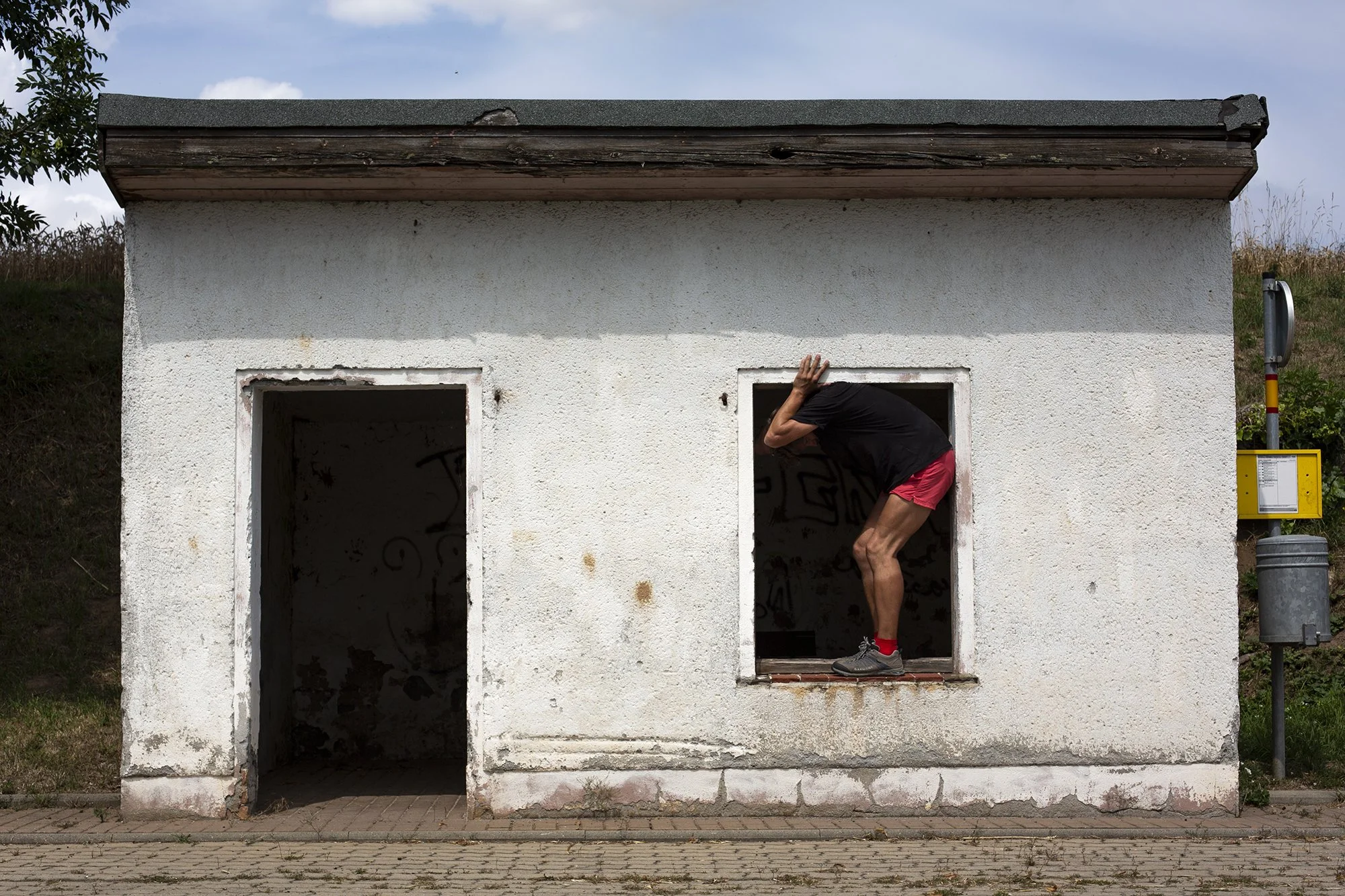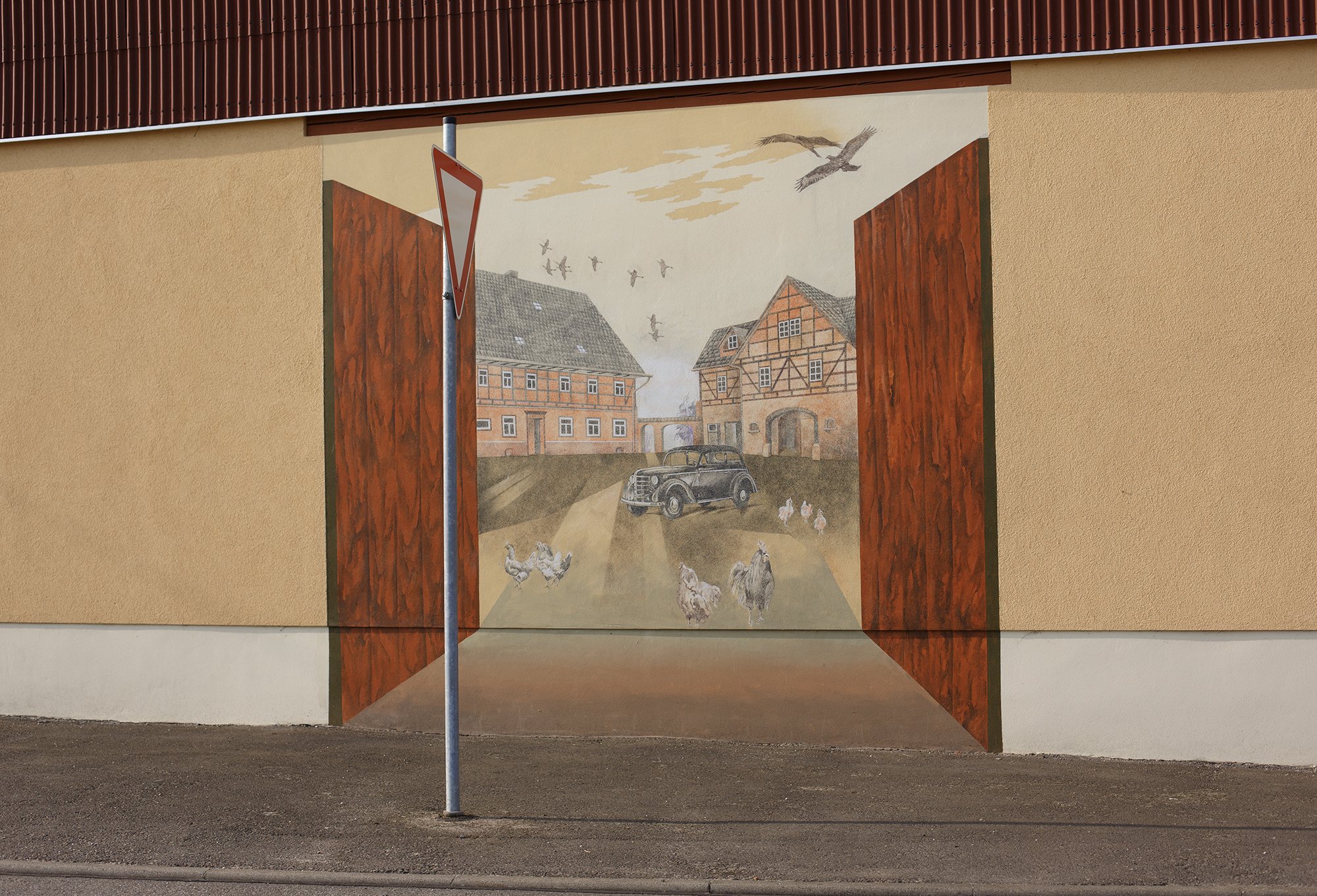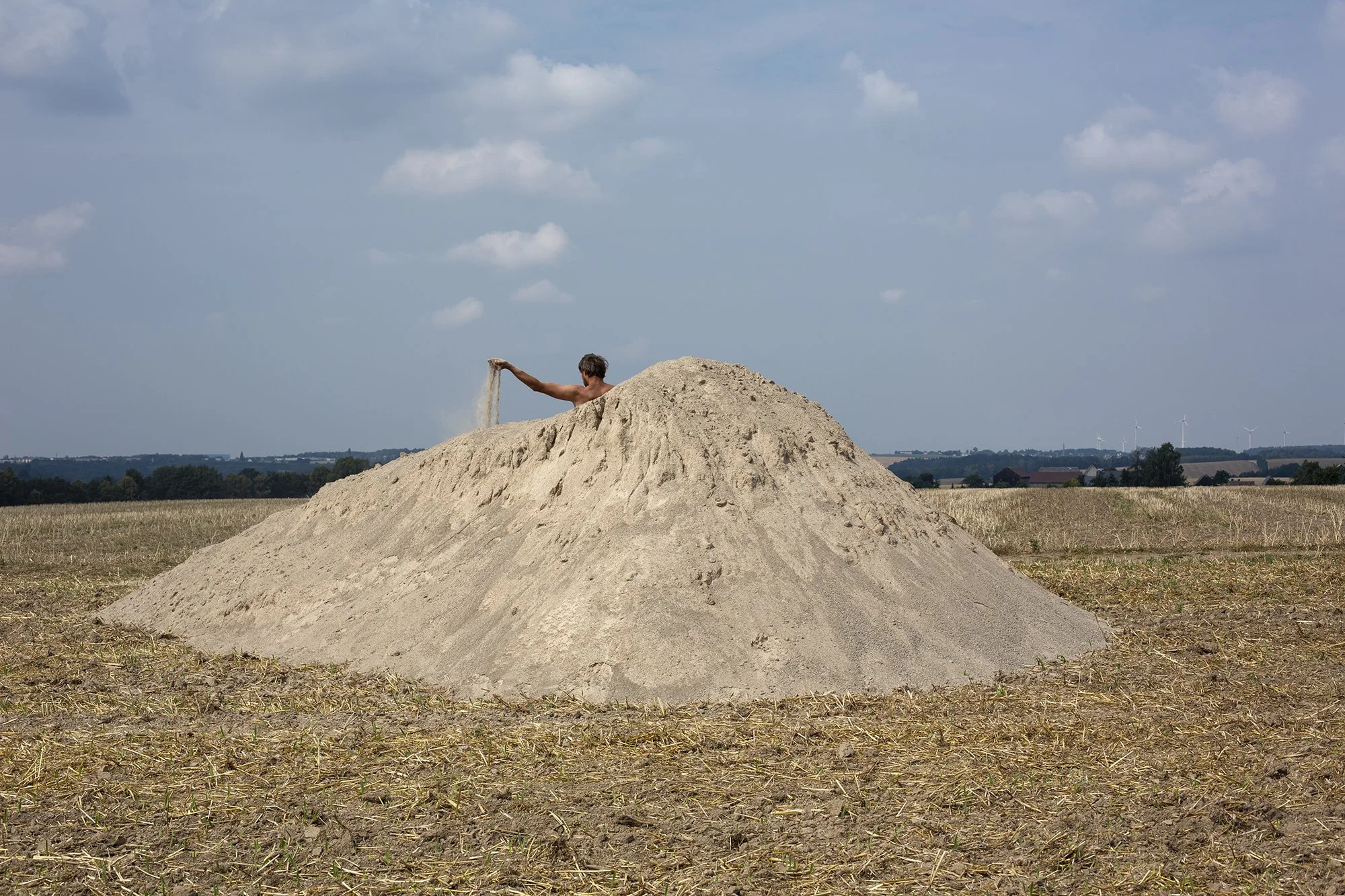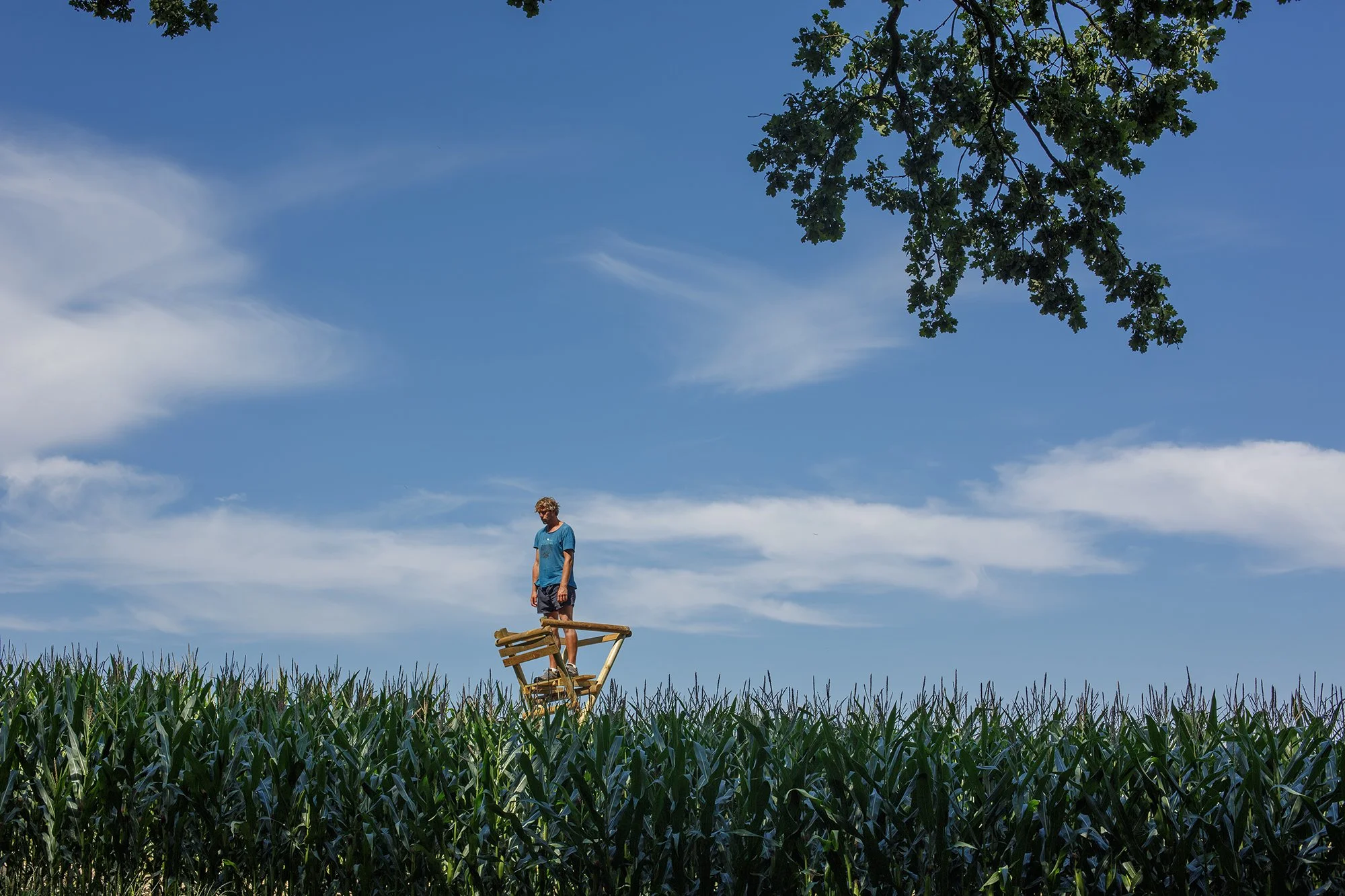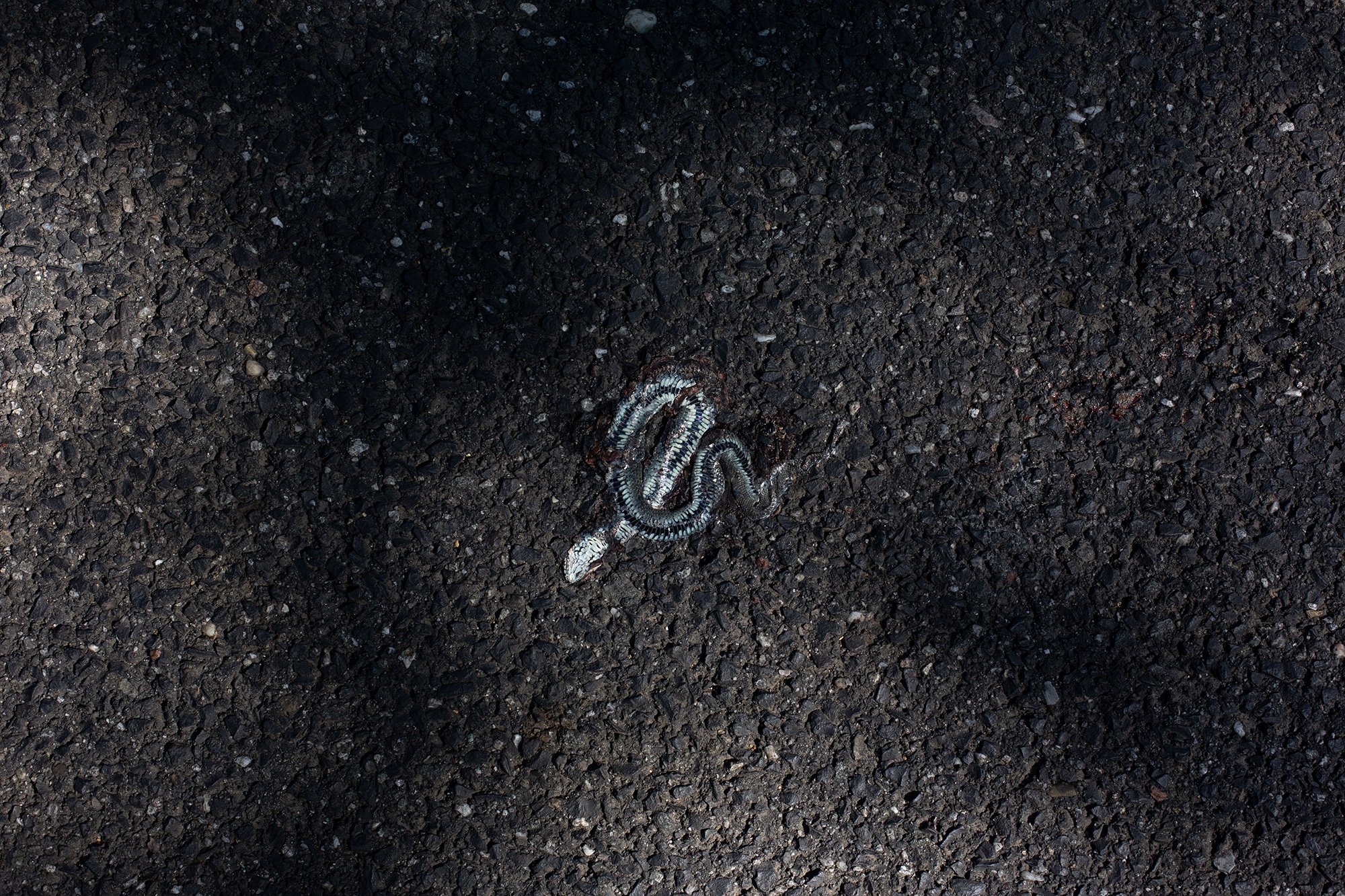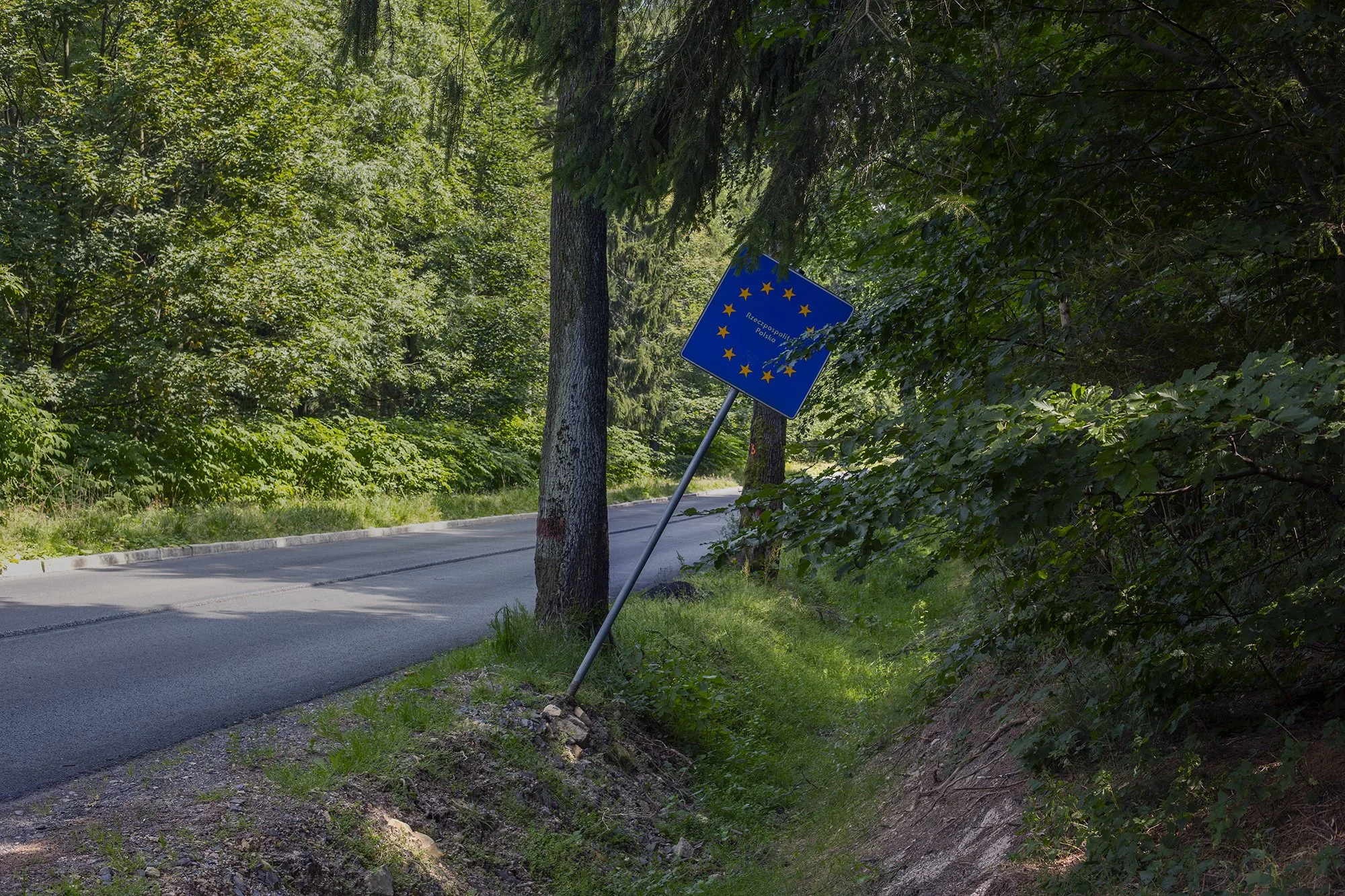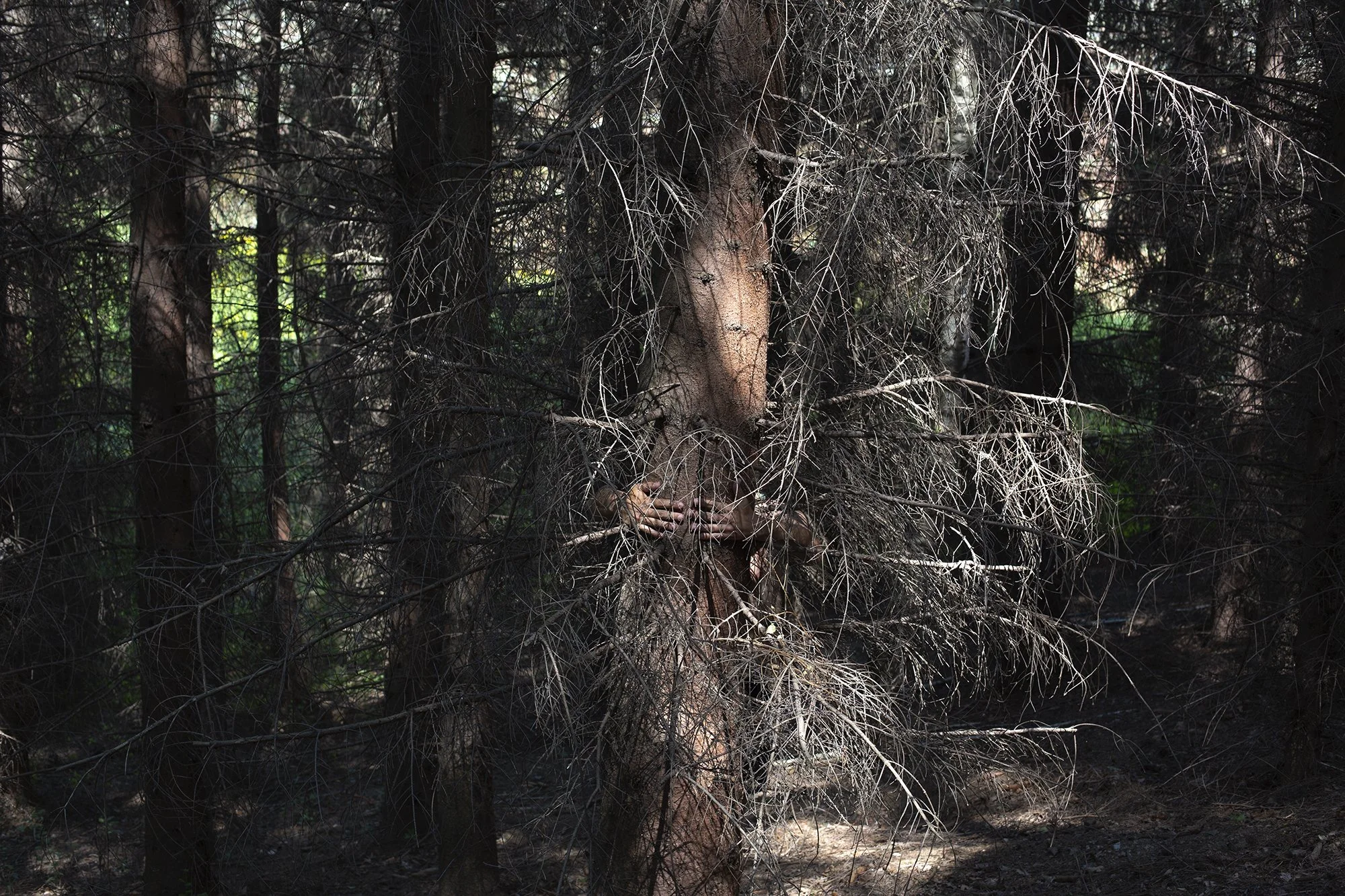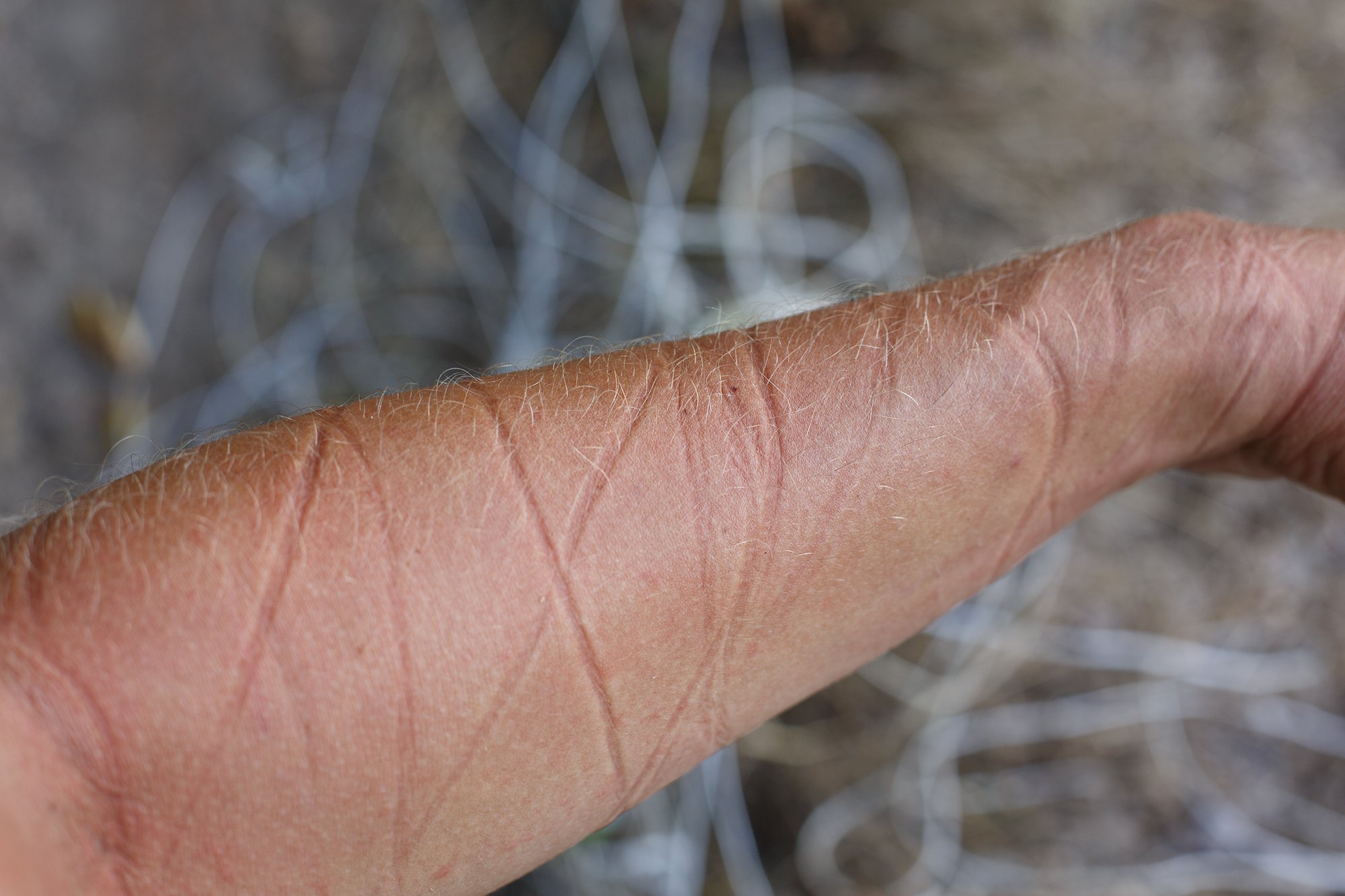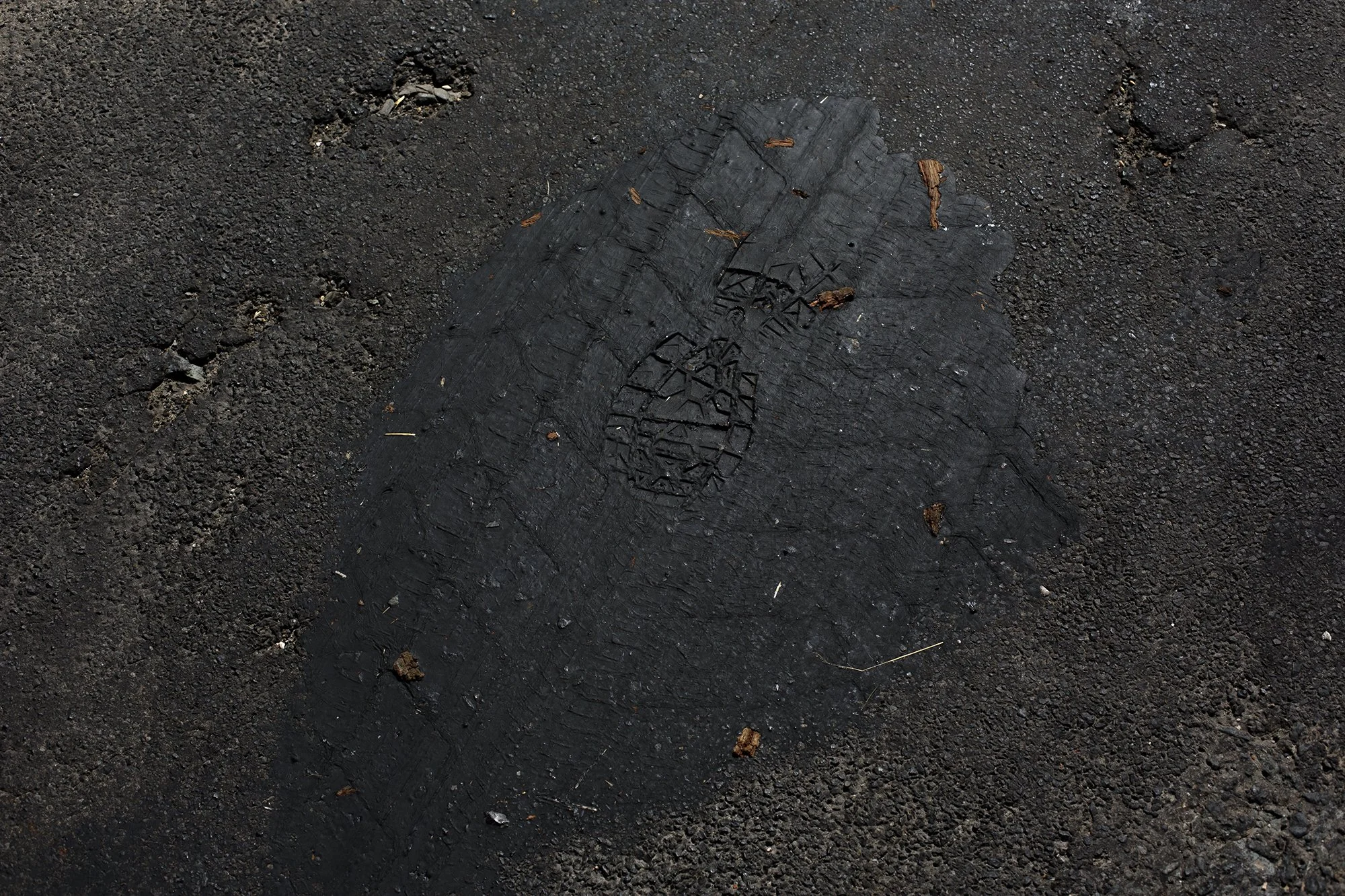GO HOME POLISH (2018 - 2023)
On 27 April 2018, Michał Iwanowski left his house in Cardiff to walk to his home village of Mokrzeszów in Poland. Carrying British and Polish passports and wearing a T-shirt bearing the word “Polska”, he began his 1,200-mile journey east, sticking as closely as possible to a straight line he had drawn on a map. Over 105 days, it would take him through Wales, England, France, Belgium, the Netherlands, Germany and the Czech Republic.
Along the way, Iwanowski posted a diary of his journey on Instagram, recording his thoughts, encounters and impressions of the landscape, the images and words unfolding as a meditation on belonging and transience. “I saw the project as a way of thinking about the idea of home,” he says, “not least because it would take me from the place I have lived in for 18 years to the place I come from. And I would be doing it at a time when Brexit had made the idea of home, identity and belonging a very politicised subject.”
Iwanowski had been thinking about walking to Poland for several years, after being confronted in 2008 by graffiti scrawled on a wall in the Roath area of Cardiff, where he lives. “Go Home, Polish,” it read. He has since appropriated the line for the project’s title. “I wasn’t shocked, but it stayed with me,” he says. “I started thinking, ‘Should I be really going home or am I already home?’ As Brexit became more volatile, I found myself thinking more about what you might call the human dilemma of home: how we can, if we have to, make a home anywhere and nowhere.”
The photographer is no stranger to long, arduous journeys on foot. In August 2013, he set out from Kaluga to retrace the steps of his grandfather Tolek, who escaped from a Russian gulag with his brother Wiktor in 1945. Travelling under cover of darkness, they made it home to Poland in three months. For his project, Clear of People, Iwanowski traced the same 1,360-mile route following a map Wiktor had drawn. In freezing temperatures, he walked eight hours a day, staying in motels to thaw out and take notes. It was an often isolated journey through timeless terrain. “In the forest,” he says, “it’s possible everything looks the same now as it did 70 years ago.”
He wanted to make this latest journey more performative. To this end, he often appears in the images, sometimes as himself, sometimes as a generic wanderer lost in an unfamiliar landscape. In one self-portrait, he clings to a tree as if in danger from a threat just out of the frame. In another, he tries in vain to squeeze between two concrete posts – the immigrant’s experience distilled.
Central to the project was his desire to meet people. It was not always easy. In France, he did not really connect with anyone. In Germany, an enraged local chased him off an allotment he had wandered on to to ask for directions. Most of the time, though, it was the sheer energy-sapping doggedness of the undertaking – “the drudgery and sweat” – that tested him as he trudged wearily through often empty, unchanging landscapes. On 8 July, his Instagram post read: “On Wednesday I crashed and decided to throw in the towel.” For a few hours, he sat at the side of a road, dehydrated and exhausted, having thrown his rucksack into the bushes in a tantrum. “It lasted a few hours,” he wrote. “I got back up.”
It wasn’t all about endurance, though, a fact reflected in some of his more humorous self-portraits. “There was definitely a madness that crept in, a dreamscape element. You go slightly loopy, which is why the diary is important. It’s keeping a thread, both visually and in terms of your thoughts. You realise it is the little poetic thoughts and observations that mean a lot.”
Iwanowski’s long walk ultimately proved both cathartic and life-affirming. “I think I have an ingrained kindness,” he says. “But, like many people, I had become more cynical of late. The experience has banished that cynicism. People are OK. In fact, they are often gloriously generous.”
Although he is an infectiously upbeat individual, I had not expected such a remark. “Me neither,” he says, laughing. “Look, I know I am a white male and that I passed quickly through towns and villages, where I was not perceived as a threat. But my experience was so overwhelmingly positive that it has made me question everything I read in the media about the hardening of attitudes that Brexit has supposedly provoked. I think that a few loud, extreme voices dominate the debate, but ordinary people are stoical or confused – and perhaps a little angry. But they are also decent.”
In France and Germany, he encountered “so many people who were utterly baffled by Britain’s decision to leave the European Union”. The same was true in parts of Wales and England he passed through – including Chepstow, Reading, Folkestone and Dover. “I tried to engage people by telling them I was an artist and explaining the project,” he says. “With most, there was an immediate sigh of relief, followed by the words, ‘Fuck Brexit’ – often from those I felt would be staunch leavers. I met a guy in full hunting gear who told me he was devastated by the Brexit vote. I stayed with a posh banker lady from London who had attended a funeral the day after the referendum. She said, ‘I felt like I went to two funerals – one for a friend and one for my country.’”
However, he inevitably glimpsed signs of the new Fortress Europe: border police in Dunkirk, for example, questioning “men whose dark features made them suspicious”. When he finally reached his village, Iwanowski was welcomed by a party of locals near his home. “They had a banner and everything, but it looked a bit like a funeral procession – save for one lady who had dressed in bright glowing polyester and was wearing a wig. It was as if they had walked out of a weird August Sander photograph, in which people are waiting for something to happen but they are not sure what.” Did it make him feel homesick? “In a way. But I was laughing uncontrollably at the absurdity of it all.”
Has this odyssey changed his way of thinking about home? “It confirmed something. I feel utterly at home walking in the landscape, wherever that landscape is. I don’t need to be told by a government, ‘This is your home.’ The ground beneath my feet sanctifies my belonging in this world – not the passport given to me by a country.”
- Sean O’Hagan for the Guardian, September 24th 2018
